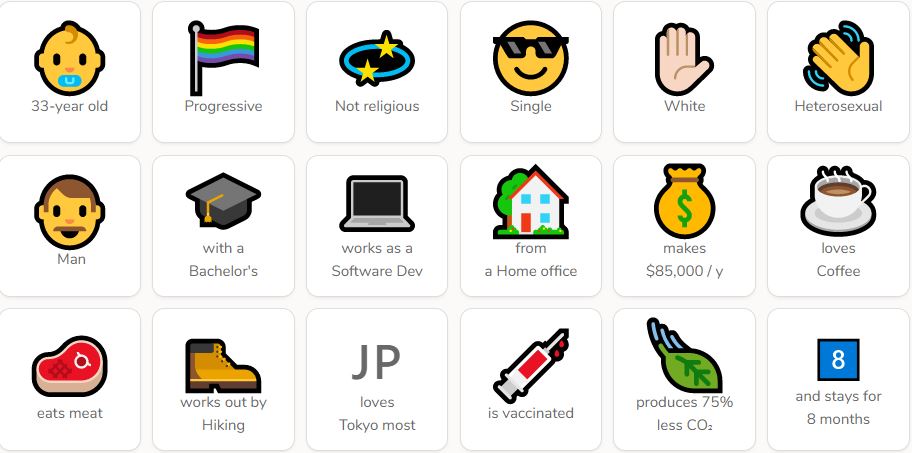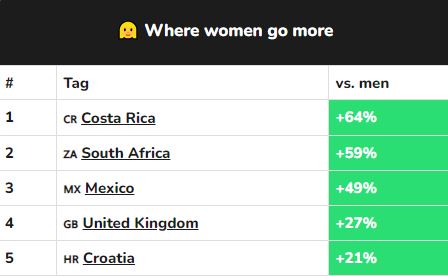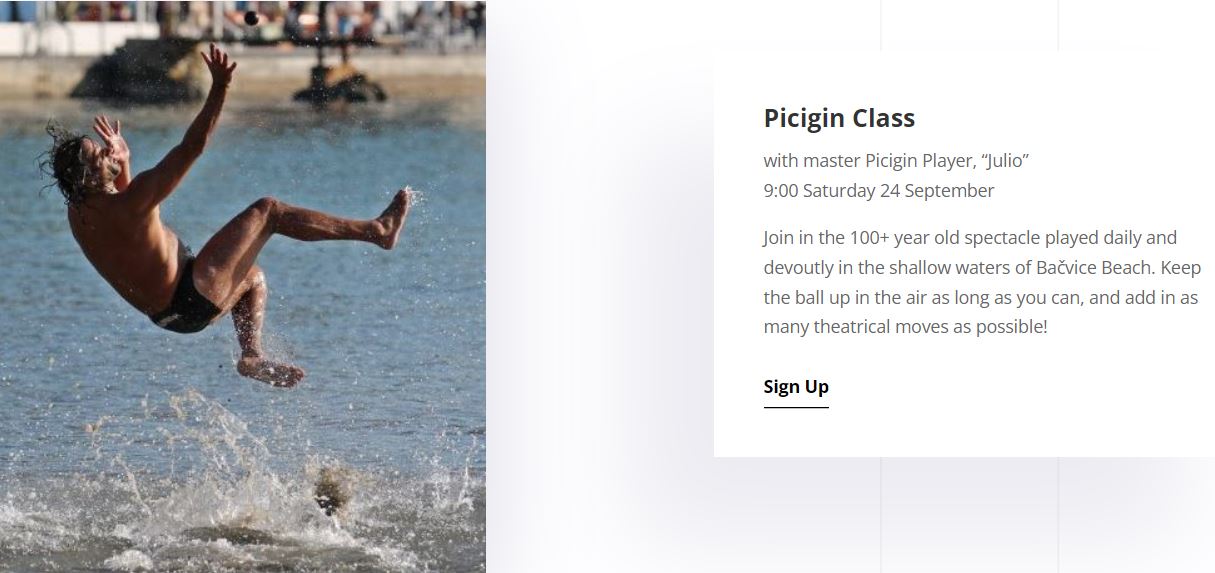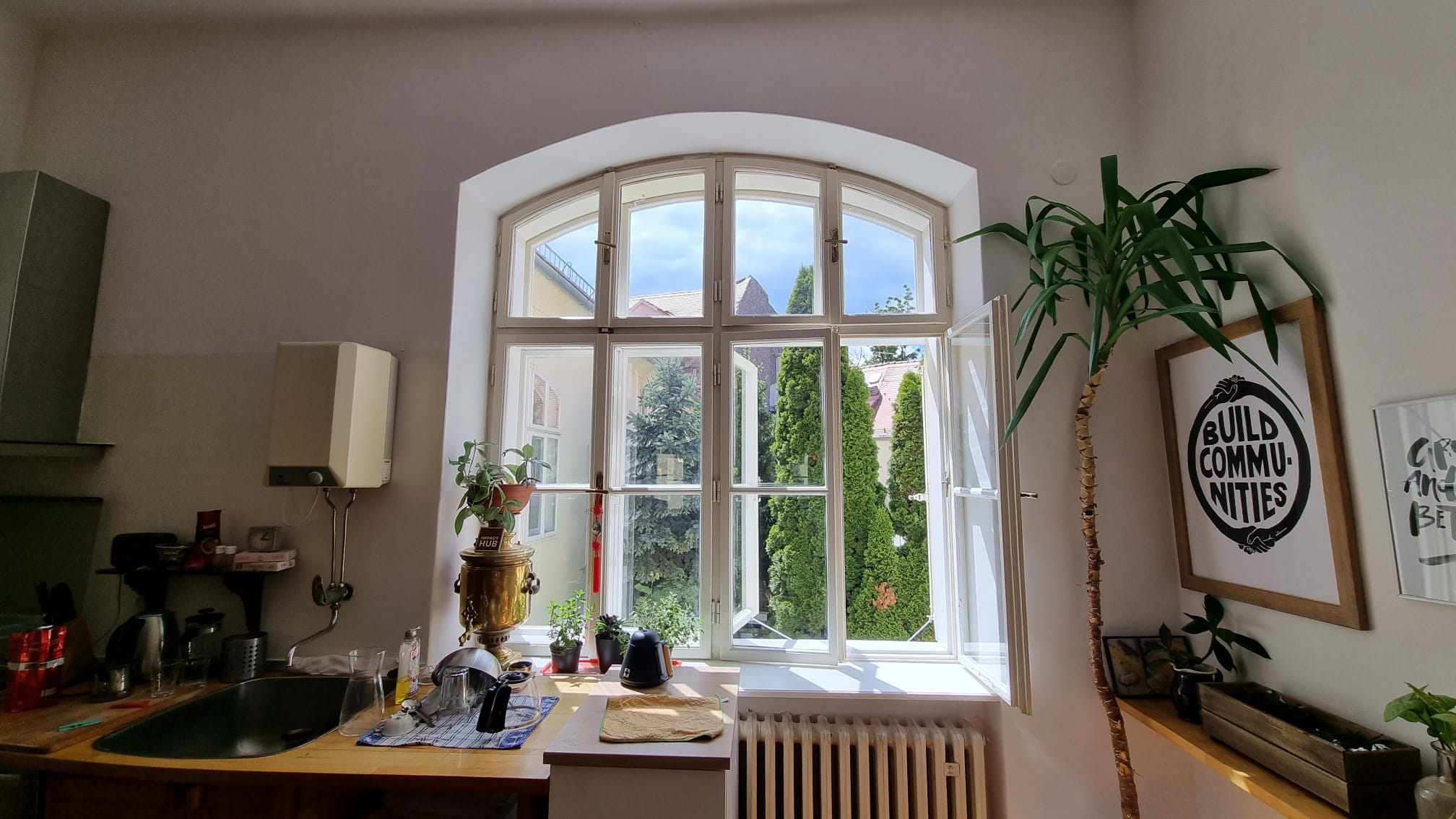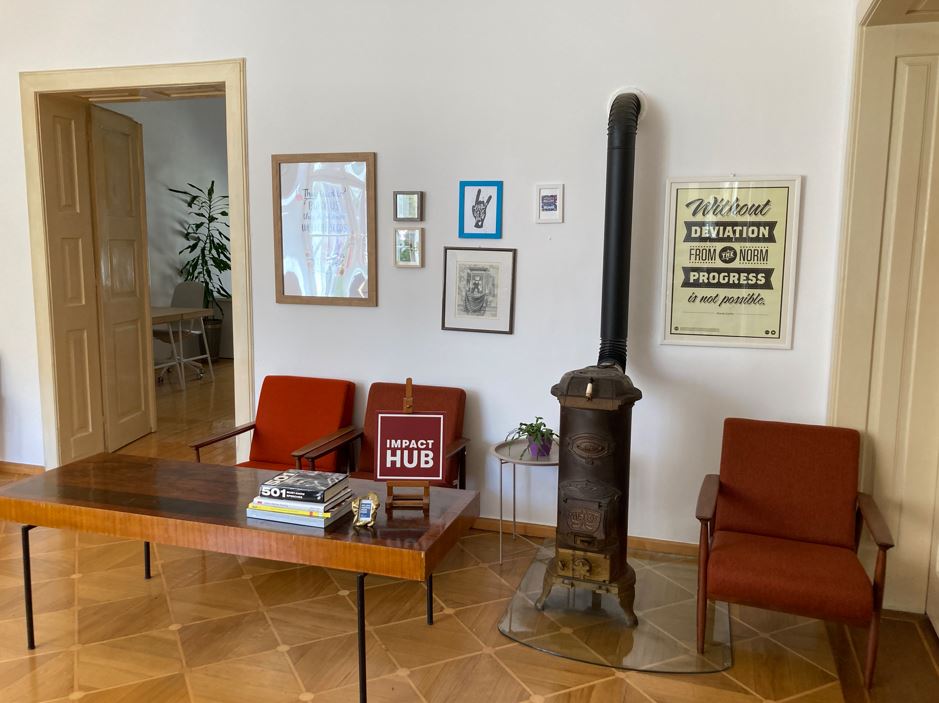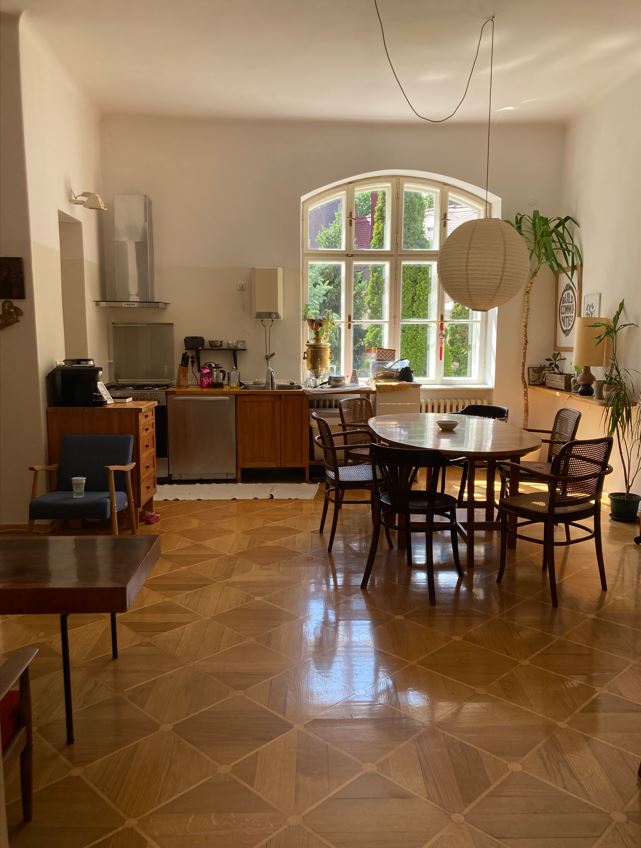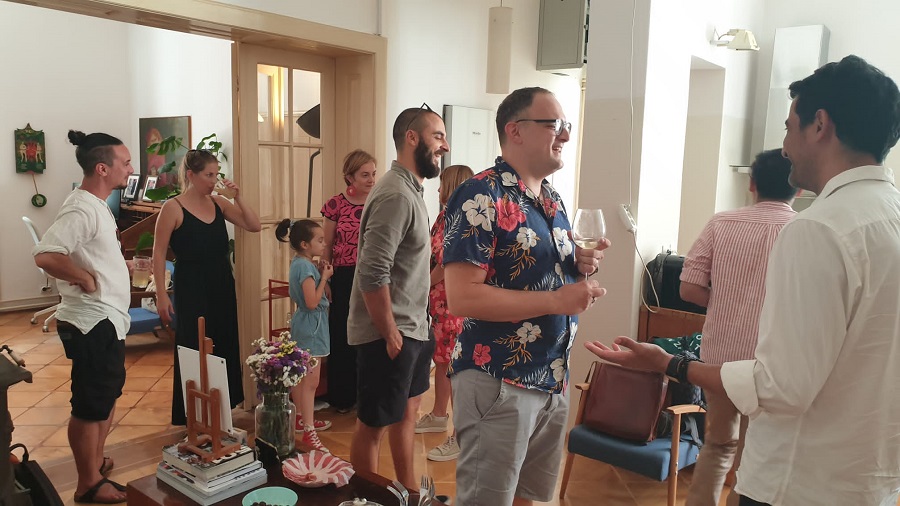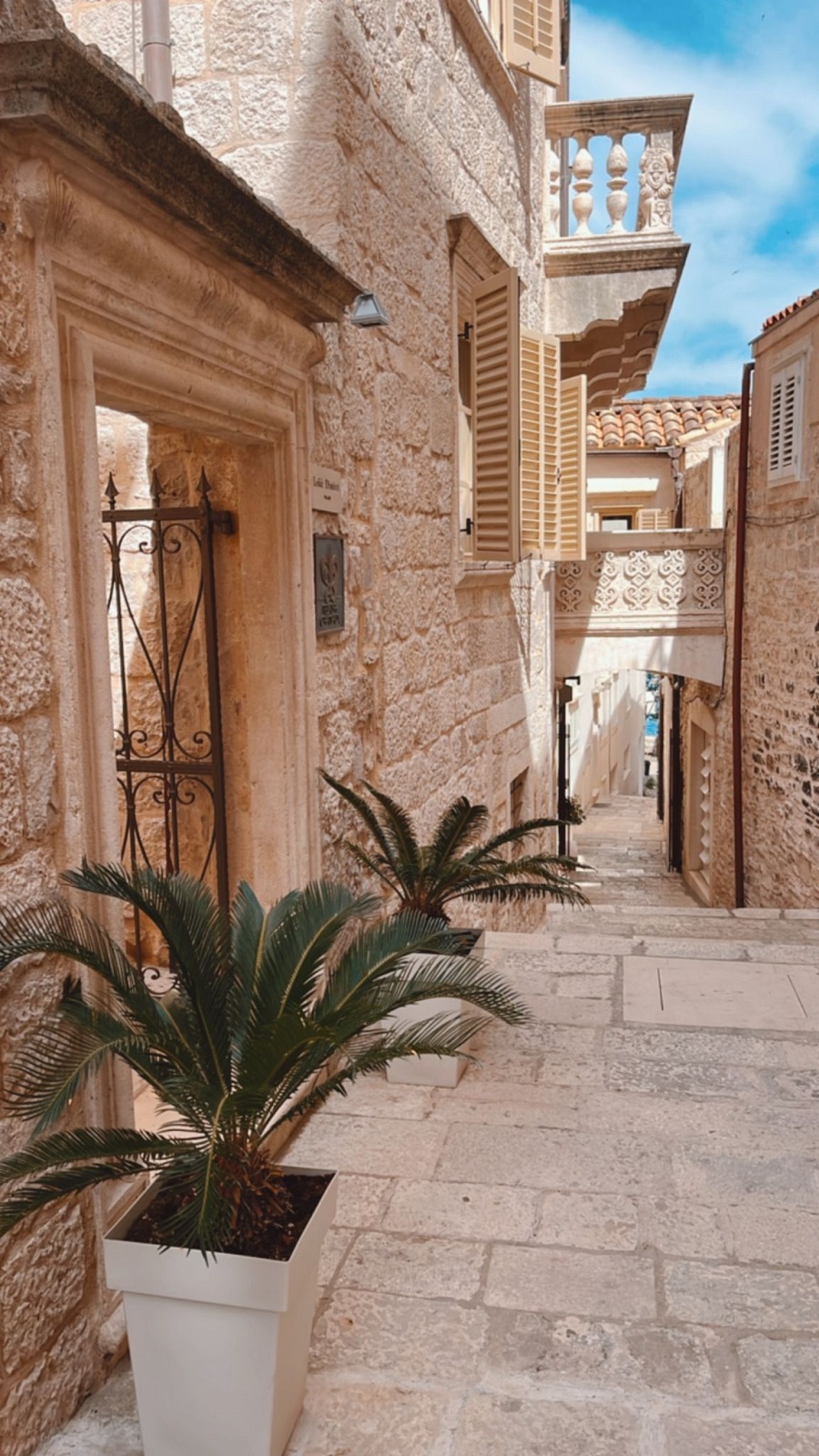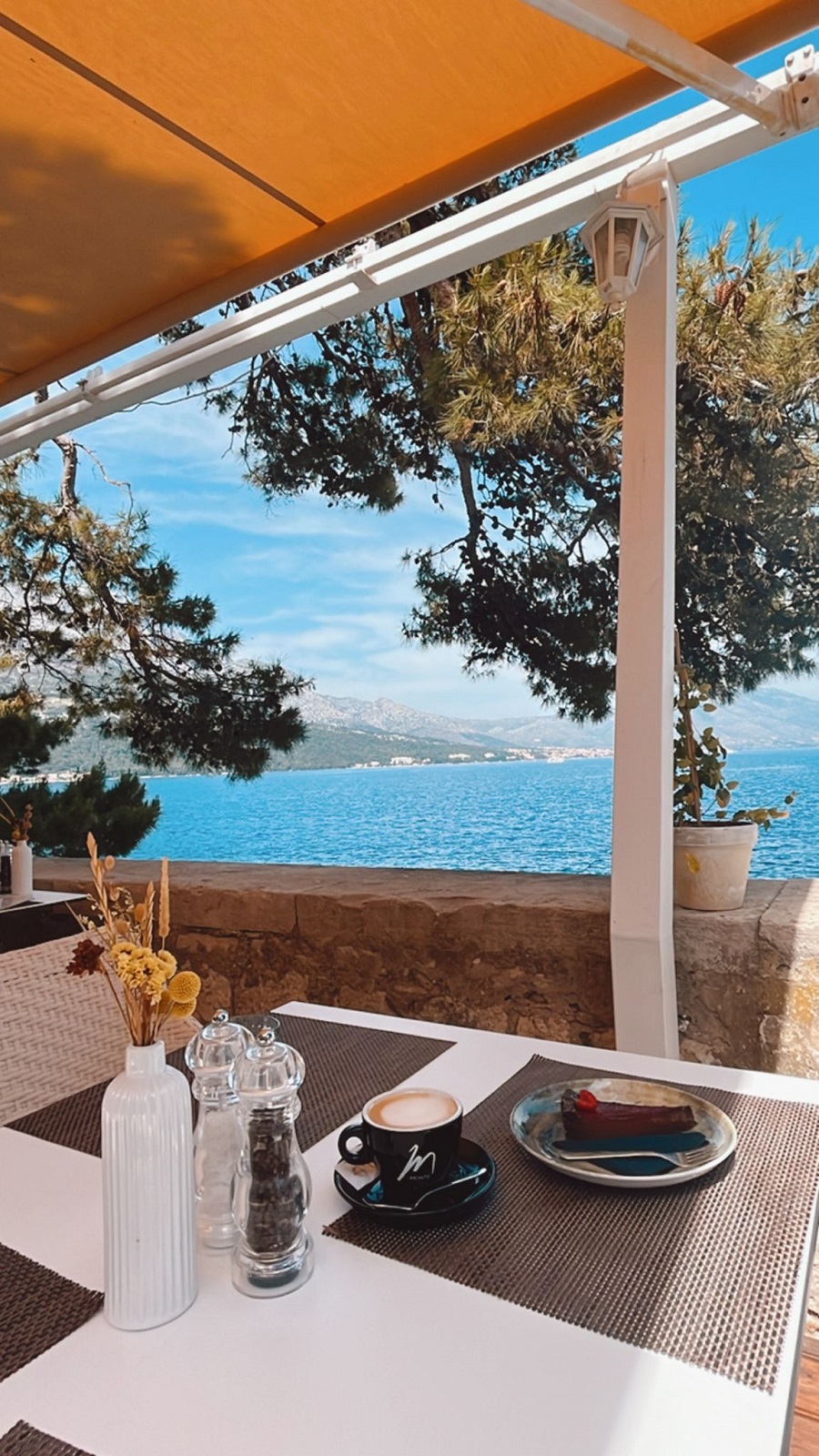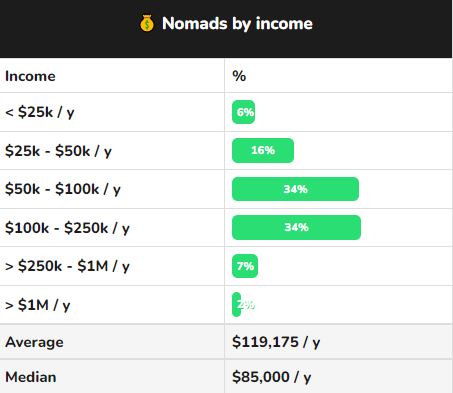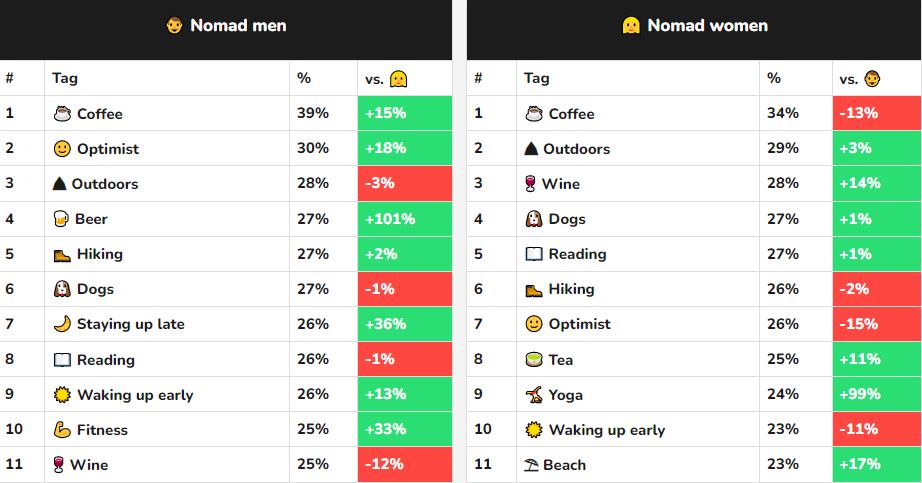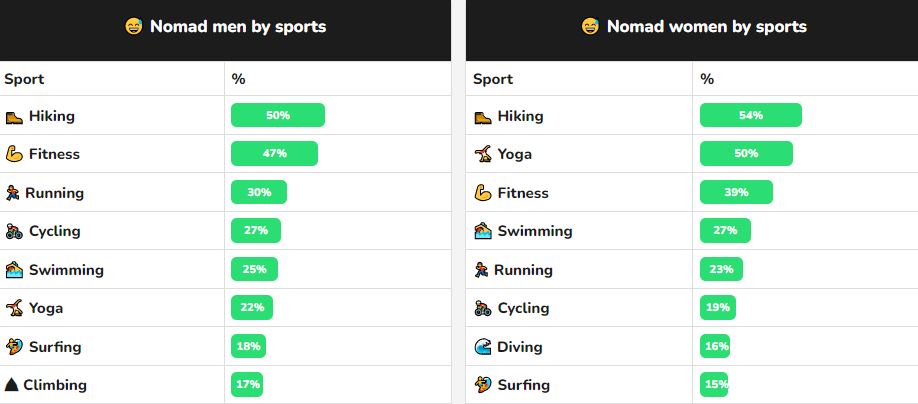Digital Nomads Love Croatia, But Longer Stays Need to Find their Way
February 12, 2023 - Digital nomads love Croatia, but for those who want to work online internationally and spend locally, longterm living in Croatia is not straightforward, reports HRT.
Croatia, which is suffering from demographic decline, has become a "hot destination" for digital nomads - mostly young, highly educated and wealthy foreigners. There are thousands of them in the country, but a small number of those who want to stay have to manage because the law does not allow them to stay longer than a year.
Closing the laptop in Thailand and starting the next working day on a Costa Rican beach is a possible scenario for an average digital nomad's working day. Although this phrase - digital nomad, was popularized back in 1997, today, with around 35 million digital nomads globally, we can talk about a trend that is growing year by year. According to some estimates, their number in the world will reach one billion by 2035.
On the list of favorite destinations of digital nomads, in competition with exotic countries, world metropolises and locations that many will see only on postcards, Croatia ranks high. Although the data varies depending on the source of information and research, according to the one conducted by the Nomad List platform, Croatia is the first favorite destination of digital nomads - globally.
Croatia is a small country, but it has a diverse offer and thus attracts different groups of digital nomads, points out Jan de Jong, founder of the Digital Nomad Croatia Association. In 2020, this Dutchman with a Croatian address instigated legal changes thanks to which, among the first in Europe, Croatia introduced a visa for digital nomads that allows citizens of third countries to stay in the country for up to a year.
In Croatia, 10 thousand digital nomads per month
De Jong points out that one of the main reasons for coming to Croatia - apart from the infrastructure, which mainly includes the need for a good internet connection and the already established community of digital nomads - is the lifestyle that Croatia offers, which, in addition to all that, is extremely affordable for them.
And it seems it is, as the average digital nomad earns around €6,500 per month, according to NomadList.
In Croatia at the end of January this year, there were 595 valid visas for digital nomads, according to data from the Ministry of the Interior, but this is not even close to the actual number of digital nomads in Croatia, as it only applies to citizens of third countries who stay there for more than three months.
For a complete picture, one should take into account EU citizens who can freely and indefinitely stay throughout the territory of the Union, including in Croatia, but also add a large number of digital nomads from third countries who stay in Croatia for less than three months.
MUP says that it does not keep special statistics on the stay of the two latter categories of nomads, so the numbers can only be estimated.
Following the trends for individual cities - Zadar, Split, Zagreb on the Nomad List platform, de Jong concludes that approximately 5,000 digital nomads come to Croatia per month. If it is seen that every digital nomad stays in Croatia for two months, it can be said that there are about 10,000 of them in Croatia every month.
In the meantime, after Croatia was one of the first European countries to introduce this visa, other European countries did the same.
In addition to the basic conditions - that they work remotely, or are self-employed and have a certain minimum amount of monthly income, which, for example, is 2,300 euros per month in Croatia, and over 6,000 euros in Iceland, the maximum possible length of stay is also prescribed for nomads.
Croatia is one of the more rigorous countries, because if the nomads like it and want to stay longer than a year, they must leave the country for at least six months in order to be able to apply for a visa again. On the other hand, in other European countries it is generally possible to extend the visa, depending on the place, for example, in the Czech Republic, for a period of three years in total.
The purpose of the visa is to promote the country's tourism
Although de Jong comments that the digital nomad visa was never intended to allow permanent residency, he says there are a number of those who turn to the association for advice on what to do if they want to stay in the country.
When asked whether, in any legal way, that visa can be extended, in case someone wants it, the Ministry of Interior answers that there is no extension option. It cannot even be combined with a permit for an extended tourist stay.
MUP explains this by the fact that the purpose of the visa for digital nomads was nothing more than tourism promotion of the Republic of Croatia.
Steve Tsentserensky, a native of Ohio (USA), a copywriter who was among the first to successfully obtain a visa in Croatia, found himself in such a legal limbo. He fell in love with Zagreb, where he was staying, so much that after the six-month period expired, he decided to return there for a longer period of time.
When asked how, because the law limits how long he can stay there, unless, for example, he marries a Croatian woman, opens a company or gets a job, he says that he will do what works to regulate his status there, and probably re-apply for the same digital nomad visa. However, he points out that it would be good if it could be extended for a longer period of time. Without necessarily leaving the country, because everyone has the option to apply again after the expiration of the six-month period, and the conditions are exactly the same, says this expert in advertising texts. Tsentserensky, who is of Slavic origin, says that the cultural features of the Croats he met there reminded him of his childhood.
His compatriot, who wished to remain anonymous, shares the same opinion. This digital nomad is in Zagreb after the expiration of her visa, in Croatian style - she reached out to the connections she quickly acquired during her one-year stay there. She did not want to leave the country and return to it again, so, although she kept the same job for which she receives an American salary, she found a solution in fake employment.
Someone offered me a work permit, she says cautiously. She thought about other ways - starting a company, they also advised her to get married, but she thinks that with the work permit she also managed to find a way to contribute to the community where she lives by paying taxes, because as a digital nomad, she didn't need to. She doesn't feel, she says, as if she cheated anyone.
Both Americans similarly fell in love with Zagreb - for drinking coffee, socializing and a lifestyle in which people, in their opinion, devote a lot of time to leisure and to each other, which is why they want to stay there for a short period of time. How long - they do not reveal, but the American woman says that she is actively learning the Croatian language and is not thinking about leaving the country.
Caroline Hornstein-Tomić, a researcher at the Ivo Pilar Institute of Social Sciences, talks about the characteristics of this group and points out that digital nomads are mostly highly educated people, mostly in their 30s, who are also excellent consumers.
Digital nomads, if they decide to stay longer, become a kind of immigrant, he points out, and adds that there is still no research in Croatia on how digital nomads affect local communities, but that the influence undoubtedly exists. They encourage tourism, but also other economic branches - they encouraged the development of infrastructure, the establishment of numerous hubs, but also services that respond to their needs for finding their way in a new country.
Interviewing some nomads who went to live on the Dalmatian islands, she says she had the opportunity to hear about positive experiences with the local community.
- Those who have decided to stay longer are also interested in local employment or business development, or are involved in volunteer work. So, in addition to financial resources, they also have knowledge that they like to share, says Hornstein-Tomić.
De Jong, the founder of the association, also referred to the demographic potential of this group, which keeps pace with new trends, that they no longer emigrate to those countries where they are better paid by work, but go to places where they like the lifestyle and their well-paid jobs. they bring with them.
- I think that this remote work revolution will never reverse, this revolution will remain, he says.
And that trend can be the biggest opportunity for Croatia, which has been left by about half a million people in 10 years in search of better-paid jobs, says de Jong, who himself has lived in Croatia for the past 16 years.
Read more in Croatia Tops Nomad List 2023 Survey as 'Most-Liked Country.'
Sunday Times Features Hvar as 1 of 3 Digital Nomad WFA European Destinations
January 8, 2023 - More good news for Croatia's attempts to attract the remote work sector, as the Sunday Times promotes Hvar in its top three WFA (Work from Anywhere) destinations.
It seems so long ago, May 2019.
That was when I met a Russian and Ukrainian couple wanting to rent our apartment for 3 months the following year, from April 1 - June 30. They were doing something called remote work 10 months a year, with two in the office in Munich. Three months each year in Jelsa, then to Italy, then to Spain, then to Portugal at home.
It sounded like an idyllic lifestyle, and one which I was about to immerse myself in, as well as dealing with the imminent pandemic.
That coffee was one of the moments of realisation about the power and the reality of the digital nomad movement and remote work shift. I became a big promoter in the opportunity, helping Jan de Jong and his team to realise only the second digital nomad permit in Europe after Estonia.
The rest is history, and Croatia is now firmly established on the digital nomad global map, with the latest evidence in the influential Nomad List 2023 survey, which has Croatia as the most-liked country for nomads, and Zagreb as the second most-liked city. You can read more about this in Croatia Tops Nomad List 2023 Survey as 'Most-Liked Country.'
And it seems that some of that nomad attraction has been rubbing off on my adopted island of Hvar, where that initial coffee took place almost four years ago, for the Croatian sunshine island featured in an excellent article in today's Sunday Times about the new breed of nomads, and the new hotspots - Hvar, Valencia and Malta in
WHY THE NEW BREED OF DIGITAL NOMADS HAVE FULL-TIME JOBS
Forget twentysomethings backpacking with a laptop. Now CEOs, architects and lawyers are doing their jobs from anywhere in the world. Plus: the new hotspots
Here is what they said about Hvar.
The WFA hotspots
by Hannah Ralph
Hvar, Croatia
Since January 2021 Croatia has been offering temporary residence via its digital nomad visa, but while most flock to the cinematic cities of Dubrovnik and Zagreb, many remote workers forget the islands can be equally welcoming to those in need of an internet connection, a community of friendly faces and little else. Try Hvar, one of the Dalmatian coast’s most popular haunts, which has co-working spaces by the sea, an emerging après-beach scene, and crystal-clean coves ideal for a post-work dip.
You can read the full article here.
For more news and features about digital nomads in Croatia, follow the dedicated TCN section.
Croatia Tops Nomad List 2023 Survey as 'Most-Liked Country'
December 29, 2022 - Croatia continues to develop its digital nomad credentials with another strong showing on the Nomad List 2023 survey.
It is 3.5 years since I started writing about the digital nomad opportunity, and it has been a fascinating ride, full of adventure, characters, and positivity, as well as proof that Croatian bureaucracy can work at lightning speed at times. The introduction of the Croatian digital nomad permit on January 1 last year was the quickest change in legislation I can recall in my 20 years in this country.
So where does Croatia stand some 3.5 years later? Back then, few in Croatia had heard of the term 'digital nomad' - now every grandmother with a room to rent talks about the potential of 'digitalni nomadi.'
The annual Nomad LIst survey is as good a snapshot of this notoriously difficult-to-track genre as any available. And Croatia has once again come out rather well. On top of the world, in fact, topping Japan and Taiwan to be the number one most-liked country for nomads in the Nomad List 2023 survey.
According to NomadList, the 'average nomad' is 33, male, progressive, not religious, single, white, heterosexual, with a Bachelor's degree, working as a software developer from a home office. He earns $US 85,000 a year, loves coffee, eats meat, works out by hiking, is vaccinated, produces 75% less CO2, stays for 8 months, and loves Tokyo the most as a city.
But right behind Tokyo, in second place, is the Croatian capital, Zagreb, which has made huge strides as a nomad destination in the last two years.
Regarding the methodology, Nomad List explains as follows:
This page is built LIVE with data pulled straight from the database every day, so it's always up-to-date. Conclusions you can derive from this are always limited and merely indicative but possibly interesting. Nomad List is a paid membership community, which means there's a selection bias as people who do not or cannot pay are not in the dataset. On the other hand, free digital nomad communities, like on Facebook, require no commitment to join, therefore it's not clear if these people are merely aspirational or active nomads or not. On Nomad List we can confirm they are active based on their travel logs
There are also mentions for Dubovnik, Zadar, Hvar, as well as Split, which is the fourth most attractive destination for male nomads.
One of the constant things I hear about Croatia from the nomads I meet is just how safe it is, with female nomads in particular commenting on how safe they feel as a single female traveller. And that feeling of safety for women seems to be borne out in Croatia being in the top 5 destinations where a higher proportion of female nomads go.
Croatia's nomad journey is still in its infancy, and there are many more established nomad bases, but it is encouraging to see Croatia enter the top 25 for the first time. And while 1% of the market may not sound a lot, Indonesia in 10th only has 2%, and Spain just 5% at number 2 on the list.
Lots of positives to be taken away from the survey, and you can see all the results in full here.
****
What is it like to live in Croatia? An expat for 20 years, you can follow my series, 20 Ways Croatia Changed Me in 20 Years, starting at the beginning - Business and Dalmatia.
Follow Paul Bradbury on LinkedIn.
Subscribe to the Paul Bradbury Croatia & Balkan Expert YouTube channel.
Croatia, a Survival Kit for Foreigners is now available on Amazon in paperback and on Kindle.

Zagreb Very Merry Wraps Up Digital Nomad Life for 2022
December 22, 2022 - As Zagreb continues to attract more and more digital nomads, the Zagreb Digital Nomad Very Merry event celebrates and closes another successful year.
It is easy to forget that 2.5 years ago, few people in Croatia had heard of the term 'digital nomad', let alone understood how the future of work was about to change. Now everywhere Croatian baka with a room to rent is familiar with the concept of 'digitalni nomadi', a new source of potential tourism information.
The nomads who were coming to Croatia were generally heading to the coast, to destinations such as Split, Hvar and Zadar, but there was one destination inland which not only saw the opportunity, but also put in motion a strategy to put it on the global digital nomad map - Zagreb.
The Zagreb Tourist Board, in partnership with Saltwater Nomads and TCN, organised Zagreb Digital Nomad Week in June 2021, followed by the Zagreb Digital Nomad Ambassador Program fo the next 6 months, one of the first IRL events in Europe after the pandemic. If nomads had not heard of Croatia in general and Zagreb in particular, that changed rapidly.
As global digital nomad ambassador and keynote speaker, Dean Kuchel said during ZDNW in the interview above, Zagreb ticked the boxes, and the only thing missing in Zagreb's complete offer was more digital nomads.
Nomads thrive on community, and that community has grown considerably in the 18 months since ZDNW. There are now more than 30 co-working places in the city, with several more set to open, and there are various WhatsApp and Facebook groups connecting the community with regular events.
They say that good news travels fast, and that was certainly the case with Zagreb's emerging digital nomad story, as they city found itself named in the top 5 most-liked cities in the world on the influential Nomad List survey of 2021 and 2022, as well as in the top 5 co-working hubs.
Last year's successful start was celebrated with the Zagreb Digital Nomad Jolly Wrap-Up, highlights of which you can see above. This was an overview of the year, hosted by Zagreb Tourist Board and Swanky Travel, bringing together key players, as well as all the six Zagreb Digital Nomad Ambassadors.

A similar event was held this year, from December 9-11, as Zagreb Digital Nomad Very Merry brought together nomads, expats and locals to preview upcoming events for 2023, as well as strengthen the community and showcase the diversity of Zagreb and its surroundings, even in winter. With a range of different activities, it was a chance to come together to drink wine, learn about local businesses, network, and explore both the city through a trademark excellent tour by Iva Silla of Secret Zagreb, as well as exploring the wider region with a trip to Zagorje.
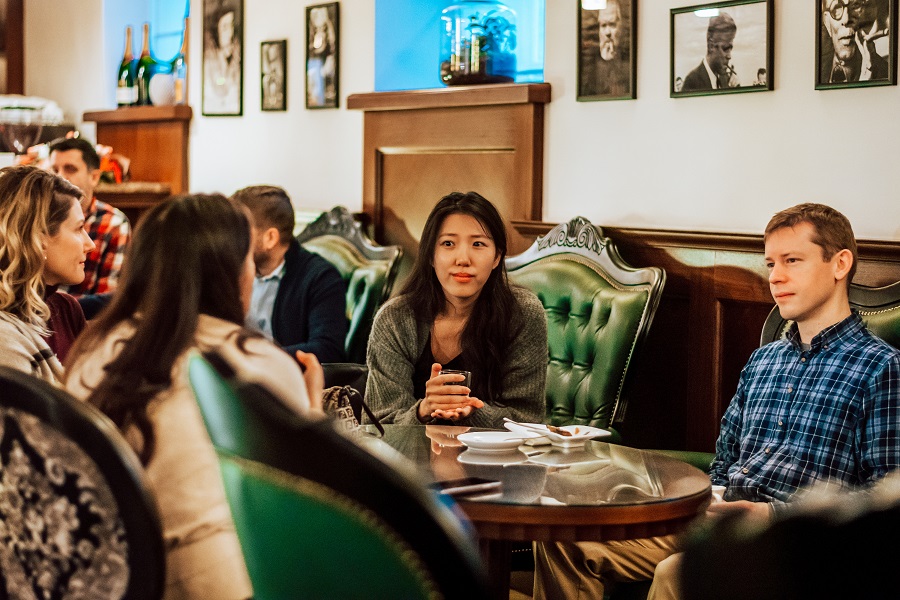
Zagreb Tourist Board CEO Martina Bienenfeld said: "The festive atmosphere of Advent in Zagreb and socializing with nomads, experts from various industries and hosts, attracted numerous participants to our city. Around the world, Europe is the region with the largest number of countries that issue visas for digital nomads, so the recent survey of the community of digital nomads who gather around the Nomad List platform is especially pleasing, according to which Zagreb took second place as the most popular destination this year as well. The British platform Reassured also conducted its research, and our city took fifth place as the best city for digital nomads. Research like this confirms that Zagreb is very well perceived in the world of digital nomads as a city with optimal value for money, quality infrastructure, growing industry, hospitality of the local population and colorful events, which enables digital nomads to conduct business efficiently and easily throughout the year."
The three-day event was diverse.
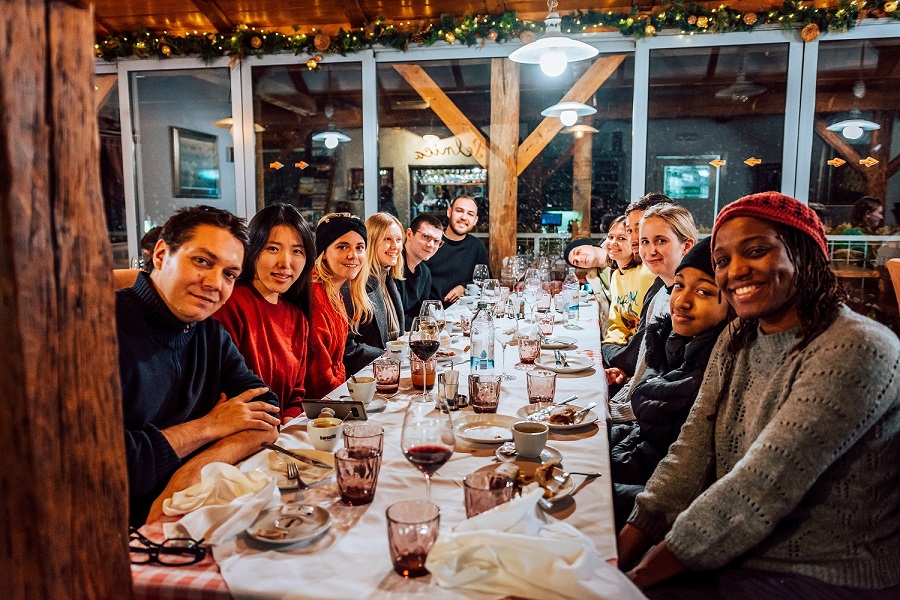
DAY 1 ( Friday 9.12.2022 )
• NOT SO SILENT NIGHT at SWANKY MONKEY GARDEN
- an evening hangout with drinks and x-mas cookies
DAY 2 ( Saturday 10.12.2022 )
• DECK THE HALL at LE PREMIER HOTEL
- press conference with coffee break followed by networking
- CHRISTMAS CAROL by Iva Silla from SECRET ZAGREB WALKS
- themed city walking tour
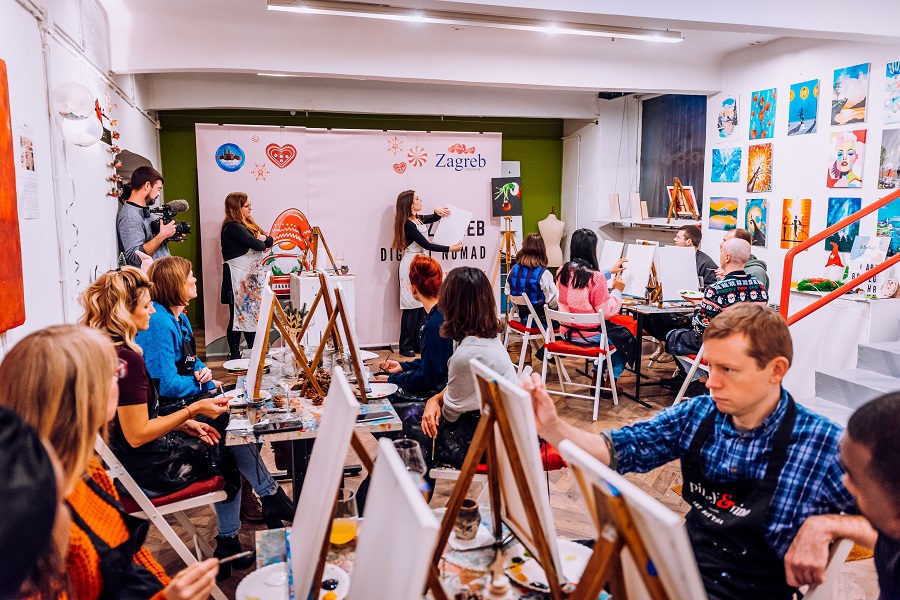
- WINE INSTEAD OF WHITE XMAS by ART BOTTEGA
- Xmas-themed paint & wine art workshop with an opportunity to try out painting skills while drinking wine
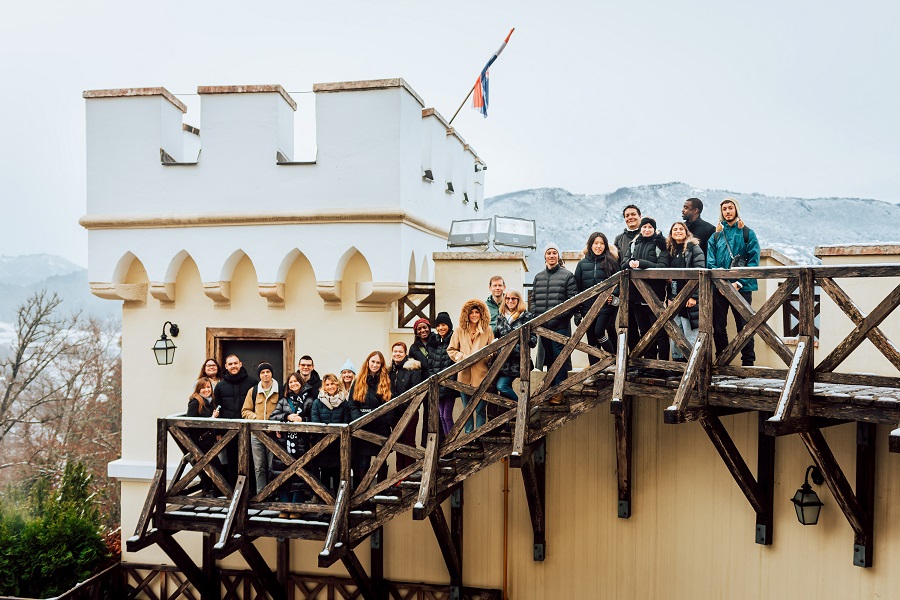
DAY 3 ( Sunday 11.12.2022 )
• WINTER WONDERLAND by SWANKY TRAVEL
- a day tour visiting a medieval Trakošćan castle + organized traditional lunch at a wonderful countryside estate Vuglec Breg restaurant & winery
A fine way to wrap up another year of Zagreb's progressive digital nomad story. Let's see what 2023 brings.
Learn more about being a digital nomad in Zagreb from the official tourist board site.
For more news and features on digital nomads in Croatia, follow the dedicated TCN section.
Slomadism Split: Join the Laidback Mediterranean Lifestyle
September 10, 2022 - Split in September just got better; a chance to network on the beach and enjoy the laidback Mediterranean lifestyle. Meet Slomadism.
I have been writing about the digital nomad opportunity in Croatia for over 3 years now, and I am learning certain truths about the scene here.
One is that if Saltwater Nomads is organising the event, there will be no compromise on quality, innovation, or a stellar lineup of speakers and activities.
Full disclosure, I have very good knowledge about the work of Tanja Polegubic and Saltwater Nomads, as TCN partnered with Saltwater Nomads (and the City of Dubrovnik and Dubrovnik Tourist Board) for the first-ever digital nomad conference in Croatia, Dubrovnik for Digital Nomads, as well as the award-winning Dubrovnik Digital Nomads-in-Residence and Zagreb Digital Nomad Week (the latter with the Zagreb Tourist Board - stay tuned for the 2022 edition next month), and this year's Dubrovnik Work. Place. Culture. conference.
A gap in the diary brought the excellent Zadar Digital Nomad Week in June.
And now, finally, Saltwater Nomads is hosting its first multi-day event in the city where its co-working career was launched - Split. Meet Slomadism. From the Slomadism website:
About Slomadism
What is Slomadism?
If you’ve traded the daily commute for location independence and asynch flexibility, you’re probably already livin’ it. Your office might be steps away from your bedroom. In another country. And next month, who knows?
Or you might just be curious…
Slomadism is a movement. The pace, implied.
And it’s up for defining.
Join us in Split – a laidback Mediterranean location, to explore themes around
finding the sweet spot when blending work and travel.
Why Slomadism Split?
It’s about time. And, it’s about time.
Every point on the planet is now on the path of the digital nomad. The interactions we see now will shape places, people and cultures for years to come. What might this look like?
Slomadism serves as a stage to discuss and define time, travel, life and work – and optimal ways they can intersect. We will share – and challenge, norms of expected outputs and relentless distractions. Look at the key areas affecting – and affected by, this lifestyle. And some of the expected trends and changes coming.
Saltwater has been very active in the city for years, with one of its signature events being the weekly Nomad Table at Zinfandel, a chance for nomads to connect over great food and company. It is an event which is growing in popularity, with Mayor Ivica Puljak attending one Nomad Table last year - check out the CROMADS video above.
Mayor Puljak will be continuing his strong support for this great new potential for Split by attending the Slomadism festival for a Q&A session for digital nomads over coffee. The event also has the support of the Split Tourist Board.
The full provisional programme is below, but check the official website for the latest.
See you on a bean bag on the beach.
****
Mid-Week Morning Sessions
Join us for a Coffee Crawl!
Tuesday 20 September: 10am
4Coffee Soul Food / Djardin Park
Miro Bandalo
Straighten Up! Perfect Posture.
Grab a coffee at 4Coffee Soul Food and join us on picnic blankets in the Djardin Park.
Later… join a cooking demonstration of a Mediterranean staple, squid ink risotto courtesy of The Works coworking.
Wednesday 21 September: 10am
Central Kavana Cafe (Hotel St Lucia)
Lucijana Jerkovic, Global PR, Croatian National Tourist Board.
Learn the latest Data & Trends in Croatian Tourism with Q&A. Learn about the shift to longer stays – and let it inspire you for how and where you go next!
Thursday 21 September: 10am
Brasserie on 7
Ivica Puljak, Mayor of Split
Join our renowned physicist-turned-mayor, for a session on how Digital Nomads fit in Split. With Q&A … and Special Guests.
Brunch option available for purchase Thursday. All beverages paid for individually at venue.
Networking Sessions - Wednesday & Thursday
18:00 Wednesday 21 September.
Marjan Hill
Get your walking shoes on and meet others on the digital nomad path, with a walk up Marjan Hill for the sunset. A moderate fitness level will be required, but we will have 2x groups. Meeting point: Info Centar Marjan Park (base of stairs), near Bokamora pizza.
16:00 Thursday 22 September. Walking Tour with local guide Gytha. Spots limited.
Meeting and end point: Gregory of Nin Statue, Djardin Park.
17:30 Thursday 22 September.
Diocletian’s Dream
Step back in time – and into the future, with a Virtual Reality screening of the Palace as it was during Emperor Diocletian’s era. There will be small group screenings lasting 15 minutes, with networking drinks as you wait.
18:30 Thursday 22 September.
Venue TBC
Networking drinks – venue TBC. Meeting point will be at Diocletian’s Dream from 18:00.
Beach Day - Saturday
Saturday 24 September – Bačvice Beach (various areas – see sessions for exact locations)
8:00 SUP! Start Standing Up – with a morning SUP session, courtesy of 45 Degrees Sailing.
9:00 Picigin (watersport) beginners class with Master Picigin Player, “Julio”. Meet on sand in front of Zbirac Cafe for the class.
10:00 Keynotes Over Coffee (includes refreshments). Žbirac Cafe.
- Steve Tsentserensky: Content and the Slow Road
- Mariska Kosteloo: Shaping and Creating a New Life as a Widow, Entrepreneur and Digital Nomad
- Orest Zub: Life as Digital Nomads from Ukraine – Learn about their ongoing Volunteer and Awareness Raising Efforts.
11:00 Slomadism Beach Talks on Bean Bags @ Kavala Beach Bar (western end of the bay).
A chilled out “open fishbowl” format, open to anyone and everyone to have their say. The conversation will flow across themes touching on the hyperlocal, through to the planet at large.. from Split’s sands to Starlink.
Who’s coming?
- Nick Hathaway: Sailing the Adriatic
- Michael Freer: Social Impact and Entrepreneurship In The Mediterranean
- Tanja Polegubic: Heritage Connections and Place
- Erin Maxwell: Unexpected Expat Life in Croatia
- Dr Diane Erceg: Volunteering as a Way to Meet New People
- Paul Bradbury: Lessons from 20 years in Croatia
- Maria Mustapic: Split’s Hospitality Sector and Digital Nomads
+ Local Digital Nomads living in Split… and passing through.
Local Card Workshop: Learn Trešete and Briškula
Some thoughts from event organiser and Saltwater Nomads CEO Tanja Polegubic:
"Split is a popular base for remote workers coming to Croatia. A large part of that is the laidback lifestyle here. With Slomadism, I see it as akin to the slow food movement - taking more time to immerse, engage and appreciate a destination. There's ways to do this, so this event highlights them.
"I'm grateful to all the supporting local businesses who've been part of this journey, so it's also a tribute to their continued support - and a chance for a knowledge exchange between locals and nomads, and ideally- an opportunity to co-create and shape how the remote lifestyle experience in Split (and nearby) can be optimal for nomads and locals alike.Come along and enjoy everything from cooking, splashing around playing picigin or cards - and not from afar, getting right in the mix. See you at Slomadism in September 20-25 September."
13:00 – FREE TIME & BEACH PARTY WITH DJ – KAVALA BEACH BAR
19:00 Slomad Table Group Dinner (prepaid). This session must be booked.
The walk-in rate is higher and pending availability.
Sunday Winery Tour
Visit the home of the original Zinfandel. A half-hour drive from Split’s centre takes you to Vina Kairos, a 13 hectare vineyard overlooking Split and Trogir and the islands. Head up in time for sunset, with a BYO picnic. Wine tasting included. Van transfers available on request.
And don't miss a couple of VERY cool and authentic workshops, both of which will help you get accepted as a local.
I think I might go and treat myself to a tight pair fo speedos and sign up for the picigin masterclass.
And you can't call yourself a real Dalmatian until you have mastered the local card games.
For the latest information, and to reserve your spot, check out the official Slomadism website.
For more news and features on digital nomads in Croatia, follow the dedicated TCN section.
2-Year Montenegro Digital Nomad Visa Announced by Jan de Jong
August 1, 2022 - The Montenegro Digital Nomad Visa has become a reality, announced President of the Digital Nomad Association Croatia, Jan de Jong.
Goog things come to those who wait...
Nine months ago, TCN reported that a Montenegro digital nomad visa would be introduced in early 2022, with the President of Digital Nomad Association Croatia, Jan de Jong, one of the instigators.
De Jong, whose LinkedIn letter to Croatian Prime Minister Andrej Plenkovic was the catalyst to Croatia's digital nomad permit last year, has been an avid promoter of the digital nomad movement, and he had some good news for those looking to spend up to two years, extendable by another two, in Croatia's southern neighbour:
And it's official! Montenegro ?? has followed into the footsteps of its neighbour, Croatia - by introducing it's digital nomad visa!
Digital nomads can now apply for a 2-year permit, which can be prolonged with an additional 2 years. Wow!
During those 2+2 years, digital nomads are exempt from paying income tax in Montenegro.
The entire Adriatic region has so much to offer to digital nomads - so it's great to see Montenegro making strategic decisions welcoming remote work professionals by granting them staying permits.
I would like to thank former Minister Tamara Srzentić MS MBA & Milovan Novakovic MRICS for kicking off and leading this initiative in Montenegro. Svaka čast!
For those digital nomads whose Croatian DN-permit expires - you now have a chance to stay in the region
Digital nomads - welcome to the most beautiful part of Europe...the Adriatic region!
Pozdrav,
Jan de Jong
President Digital Nomad Association Croatia
Exciting times for the region. You can follow the latest news and features regarding digital nomads in Croatia in the dedicated TCN section.
****
What is it like to live in Croatia? An expat for 20 years, you can follow my series, 20 Ways Croatia Changed Me in 20 Years, starting at the beginning - Business and Dalmatia.
Follow Paul Bradbury on LinkedIn.
20 Ways Croatia Changed Me in 20 Years: the Insider Guide to Surviving Croatia will be out by Christmas. If you would like to reserve a copy, email This email address is being protected from spambots. You need JavaScript enabled to view it. Subject 20 Years Book
Impact Hub Reopens in Famous Central Zagreb Film Location
July 17, 2022 - A superb addition to the Croatian co-working scene, as Croatia's first-ever cowork, Impact Hub Zagreb back in 2013, reopens in a fantastic location much loved by Croatian film lovers.
One of the things I have learned in my time in Croatia is just to go with the flow. Attending events these days always leads to an interesting conversation or two, and so it proved with the recent G2 diaspora conference, DiWine Summer.
Among the many participants in an international gathering of 16 nationalities was the happiest Mexican I know in Croatia - Hermes Arriaga, co-founder of the first-ever coworking space in Croatia, almost ten years ago. And Impact Hub Zagreb has had plenty of impact since opening its doors in 2013. Far more than a mere coworking space and part of the larger Impact Hub family, the Zagreb hub has more than delivered on its vision over the years:
We believe the only way forward in a complex world is by joining forces to build a future where business and profit work in support of people and the planet, taking collaborative action for a better world.
In Croatia we envision a space for impact entrepreneurship and innovation for the generation of leaders who move the economy and society forward.
We found ourselves next to each other for dinner at G2 and fell into earnest conversation about life, business, and the joys of Croatia today. I had a couple of business ideas I wanted to run past his experienced brain, and he was keen to tell me about the new location he had just moved to, in a prime location in the heart of the historic Upper Town.
"And not only that, but the building and apartment is also famous as the location for one of Croatia's most-loved films, Tko Pjeva Zlo Ne Misli (He Who Sings Means No Harm). You must come and visit, and we can talk a little more about this business idea."
There are a growing number of coworking spaces in Zagreb, more than 20 at last count, but few can match the new Impact Hub Zagreb location for personality, heritage and location. Lived in for 50 years by an actress who has recently rented it out, so many original features and period furniture have remained and been incorporated into the layout of the new Impact Hub Zagreb that its sprawling layout on the first floor overlooking a divine courtyard are a joy to behold.
And as Hermes took me through his business coaching plan, knocking my very rough concept into shape, I contemplated for the first time dividing some of my working week with visits to this new neighbour of mine, despite having happily worked from home and cafes for 20 years. The cowork has plenty of rooms to choose from, but the vibe and mindset already being established is somewhat addictive. Only positive vibes exist.
Impact Hub Zagreb had a soft opening on Friday, welcoming friends, partners and regulars for a welcome drink and a tour. It is a location which is bound to be popular and a fantastic addition to life in the historic Upper Town. To learn more about the services of Impact Hub Zagreb, check out their official website.
Digital Nomads, a 2-Year Croatian Bureaucracy Success Story
Back in 2003, I bought a piece of real estate in Croatia which the lawyer insisted had clean papers. Nineteen years later, we are edging towards ownership.
Just over 2 years ago, an article quoting me in the Croatian media resulted in me getting sued. The next hearing is in November, and it will probably be another couple of years until the case is resolved.
Such is the nature and speed of Croatian bureaucracy. While these examples may seem extreme, they are by no means atypical. The wheels of Croatian bureaucracy tend to move slowly.
But then on occasion - incredibly, refreshingly - an example of Croatian efficiency appears that gives us a tantalising glimpse of how the future might look, and just how well Croatia could work with everyone pulling in the right direction.
I have been writing about the Croatian digital nomad opportunity for more than 3 years now since it first appeared as a strategy for Croatia at a conference, and as part of my suggested Branding Croatia for the Future: 5 Gifts and Trends to Focus On.
But the day Croatia's digital nomad journey really started to move celebrated its 2-year anniversary this week, the catalyst being an open letter on LinkedIn from Split-based Dutch entrepreneur, Jan de Jong, to Prime Minister Andrej Plenkovic on LinkedIn, asking for the introduction of a digital nomad visa Croatia.
What happened next was really quite astounding, at least to this long-term resident of a country where bureaucracy is king. Less than 6 months after that open letter, de Jong not only had met with the Prime Minister, but also worked with 5 ministries on the details, with the end result that on January 1, 2021 Croatia introduced its digital nomad permit, only the second of its kind in Europe after Estonia. Having introduced Jan to the digital nomad concept, he kept me closely informed of progress over those months (and which we reported step by step on TCN), and the determination of Jan and those around him, coupled with the willingness of public officials to push this forward was a joy to report on.
It also made one wonder that if it was possible to go from LinkedIn open letter to changing the Aliens Act and tax code and introduce a new permit in less than 6 months, what else could be achieved if the people who run this country put their minds to it? And if Croatian bureaucracy could be solved for a case like this, what would it take to make the digital nomad bureaucratic road map a standard for the rest of Croatian bureaucracy?
But that is a discussion for another time.
The last two years have seen immense progress for Croatia in what is perhaps one of the biggest potential growth areas for tourism in this country. Remote work is perhaps not a classic tourism sector, but as the world changes and we look for more sustainable solutions beyond beach overtourism in the peak season, the rise of the workation is showing no signs of slowing down. A cursory summary of the needs of this new tourism niche shows that Croatia is in pole position to take advantage - Lifestyle: NomadList Shows Why Croatia Most-Liked Remote Work Destination in Europe.
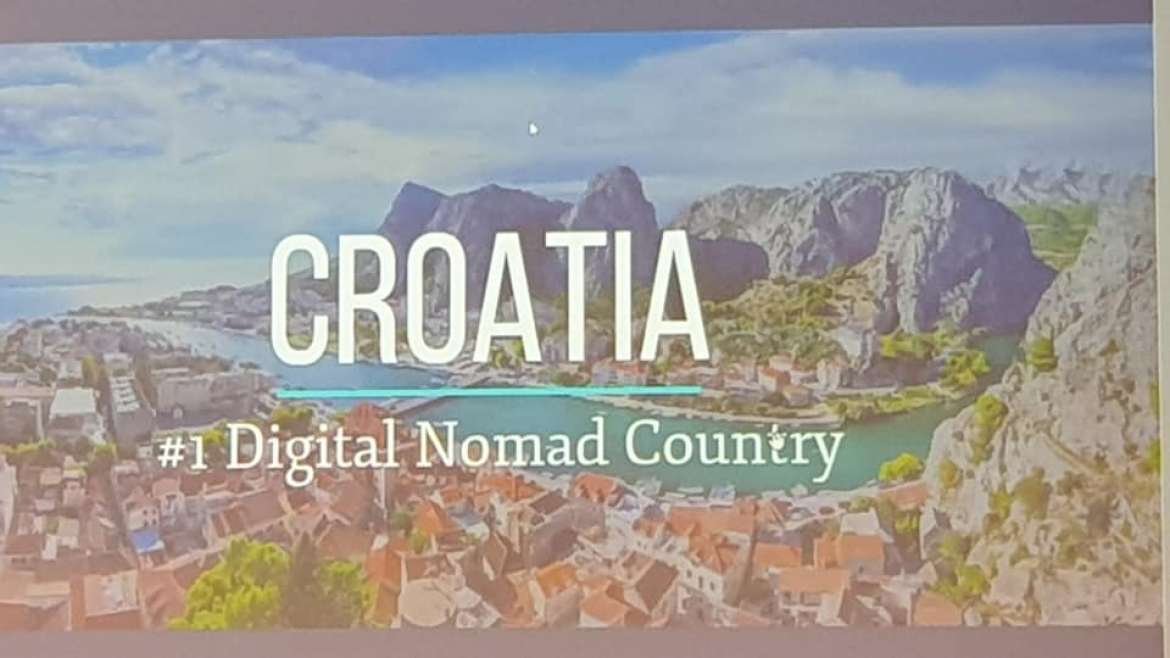
What happened next was a little unexpected. Just 5 months after Jan's post, the first claim by an industry insider that Croatia had the potential to become the world's number one digital nomad community was made at the first-ever dedicated digital nomad conference in Croatia in October, 2020 - Dubrovnik for Digital Nomads, organised by Saltwater Nomads, Dubrovnik Tourist Board, the City of Dubrovnik, and TCN. The claim, by Travel Off Path's Kashlee Kucheran, certainly helped Croatia's pioneers with encouragement and belief.
Kashlee may have been early, but she was not alone, with Croatia featuring as the second most-liked destination for nomads in the influential NomadList 2021 AND 2022 surveys. And there was more good news below the headlines, with Zagreb featuring in the 5th most-liked destinations in the world (and number 1 in Europe), as well as the fastest-growing remote work hun in Europe over the last five years.
An absolute key to Croatia's success has been the excellent public-private partnership on so many levels, a partnership that is often commented on by visiting nomads, as such a thing hardly exists in other countries. Most of the initiatives have come from the private sector, but they have been enthusiastically embraced by the public sector, with the digital nomad permit being a great example.
But there have also been excellent collaborations at the regional level, and the award-winning Zagreb Digital Nomad Week (Saltwater Nomads, TCN and Zagreb Tourist Board) and Dubrovnik Digital Nomads-in-Residence (Saltwater, TCN, City of Dubrovnik, Dubrovnik Tourist Board) are among several projects that have really helped lift Croatia's global visibility.
So too the formation of the world's first-ever Digital Nomad Association, DNA Croatia, which was founded by de Jong, Saltwater's Tanja Polegubic, and Karmela Tancabel, and really pushed forward by its first director, Michael Freer, to build an umbrella and a community to serve and advocate for the needs of the incoming digital nomads. DNA Croatia has also inspired similar associations in other countries. It is fair to say that Croatia has definitely arrived as a global voice in the remote world, something that was in evidence in the rich lineup of international participants at this year's Dubrovnik Work. Place. Culture. conference.
DNA Croatia has also signed a partnership with the Croatian National Tourist Board, which is excellent news, allowing the public and private institutions dedicated to developing this sector to work in tandem.
And the community is growing and becoming more integrated. A very nice eco-system is developing, and the mindset is slowly starting to dripfeed into Croatian society. With emigration often the number one priority for Croatian youth in search of opportunity, the arrival of a growing number of successful and happy international workers, who are choosing Croatia for its lifestyle and opportunity is giving pause for thought.
It has been an incredible two years of positive change and great energy. The power of a social media post, public-private partnership, and community to effect change. A lot has been achieved in just two years. Fasten your seatbelts, as the next two years promises to be even more exciting.
For more news and features on digital nomads in Croatia, follow the dedicated TCN section.
The Ultimate Guide For Digital Nomads in Korcula
July 3, 2022 - The island of Korcula is slowly being discovered as a remote work paradise. A comprehensive overview for digital nomads in Korcula from its first two DN ambassadors.
This guide is written by Yvette Pelgrom and Mandy Fransz to share their top tips and recommendations after working remotely in Korčula island, Croatia as the inaugural Digital Nomad Ambassadors, a pro-bono concept designed and delivered by Saltwater Nomads, in partnership with the Korčula Tourist Board, Korčula Hill and LD Palace.
After spending a few weeks in beautiful Dubrovnik, we’ve had the unique opportunity to experience the digital nomad lifestyle in one of the magical Croatian islands only a 2,5-hour ferry ride away: Korčula island.
Also known as “Little Dubrovnik”, Korčula is featured as the 5th most beautiful island in the world according to a Big Seven Travel list alongside popular hotspots including Bora Bora, Maldives, and Bali — and we couldn’t agree more!
With its tagline “one island, endless experiences” we’ve been astonished by the magical Old Town with its cobblestone streets, tiny beaches with crystal clear waters, serene coastline and scenery, and most of all, its pure and kind locals.
There are plenty of activities to explore the island by foot, bike, or boat which makes this the perfect place to visit all year round — whether you’re looking for adventure or simply want to relax and enjoy the island’s tranquility.
We’ve created memories of a lifetime: from learning about the local bee farms and olive oil production, tasting the typical Grk wine at one of the family-owned vineyards, and enjoying a Michelin-starred meal on a traditional Kata boat.
In this guide, we happily share our top tips and recommendations to help you create the ultimate digital nomad experience in this dreamy oasis called Korčula.
Where to stay:
According to locals, Korčula’s famous resident Marco Polo started his travels along the Silk Road from this magical island. Korčula Old Town is built in a very special way, resembling something of a fishbone to protect the town against sea winds.
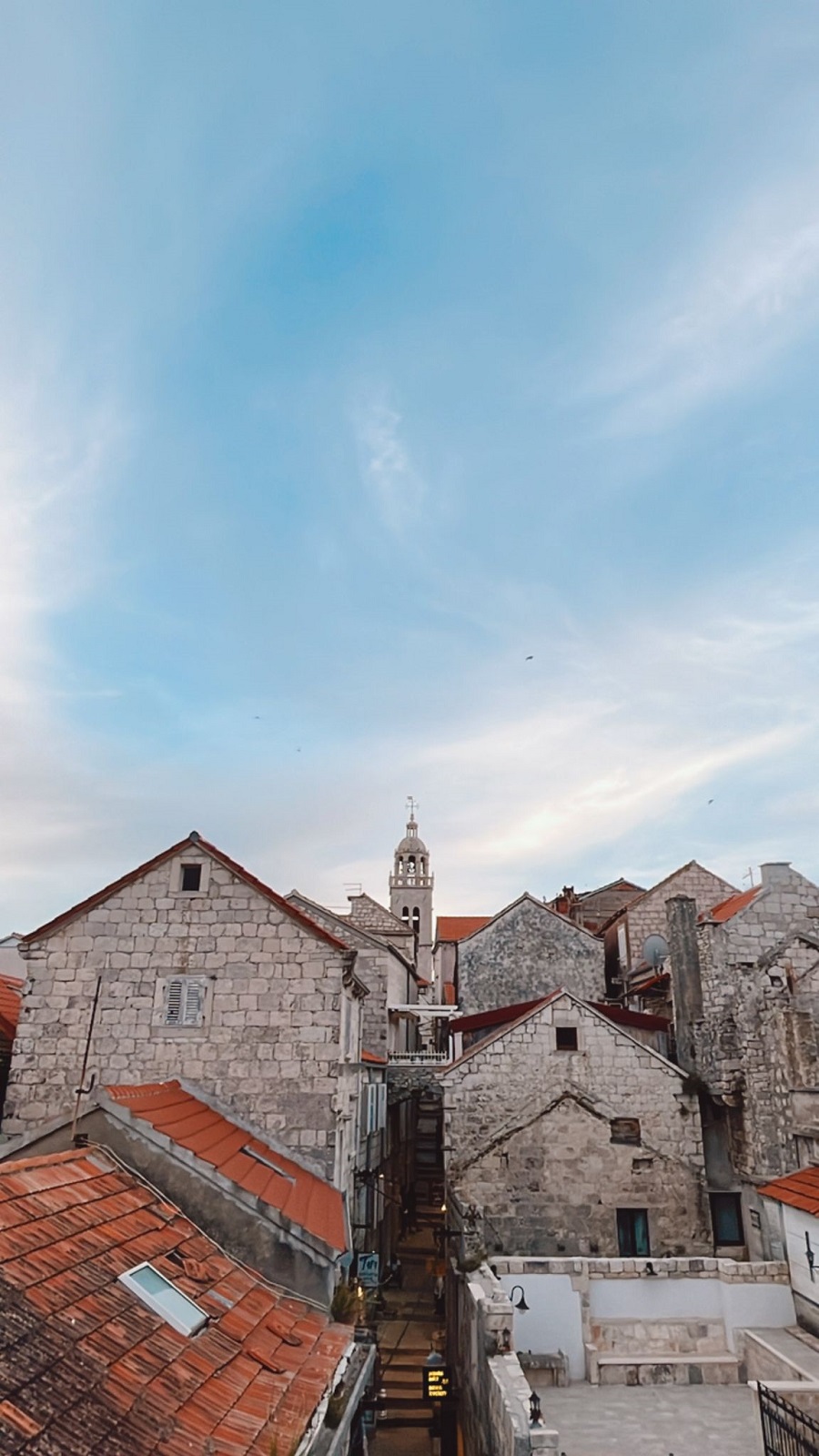
During our two-week workation, we’ve had the pleasure to stay at Korčula Hill — a self-catering luxury apartment complex just a short drive from Korčula Old Town. They provide discounted offers for long-term stays to attract more digital nomads starting for as little as $200,- per person / month for a 2- or 3-bedroom apartment.
The modern and well-equipped apartments provide everything you need: from high-speed Wi-Fi, fully-equipped gym, tennis & basketball court, bicycle rental, and two outdoor swimming pools with amazing views of the Pelješac peninsula. Follow the trail just behind the building for a short hike with a gorgeous view!
As a guest, you’ll also get free access to the sunbeds at La Banya beach, which is the perfect place to relax or do a bit of work from their restaurant or terrace bar serving delicious stone-oven baked pizzas and home-made ice tea.
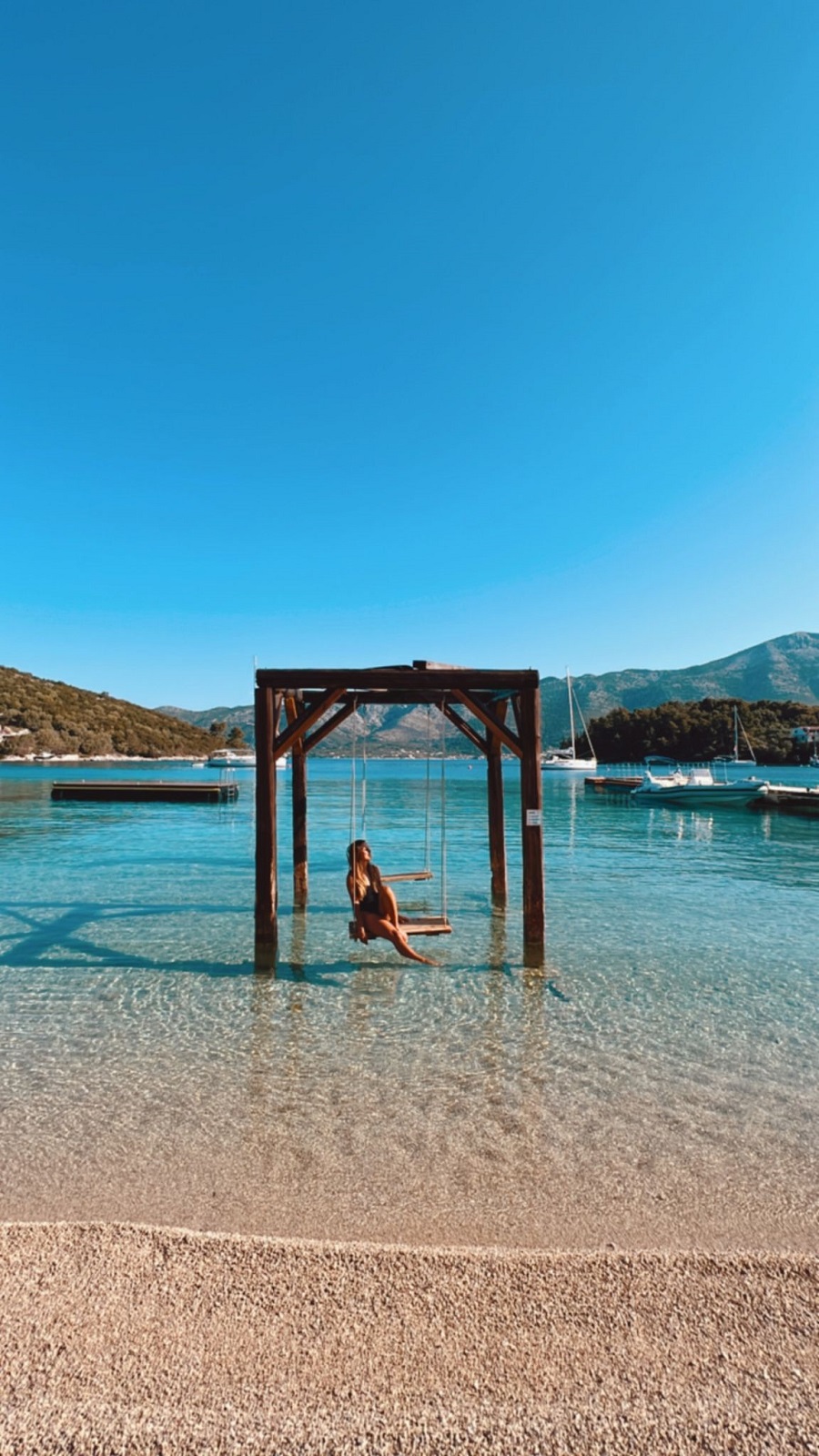
If you’re looking for a more budget-friendly option, we highly recommend this Airbnb in Medvinjak, a two-bedroom apartment only a 15 to 20 minutes walk from Old Town with a spacious terrace and an amazing view perfect for stargazing at night! And the best part: it’s a stone's throw away from small, semi-private “hidden” areas to enjoy a dip in the sea before, during or after work (or, all!).
Last but not least, if you’re looking for a honeymoon-worthy luxury experience we highly recommend LD Palace, a lovingly restored 18th-century palace now offering five unique residences for those wishing to escape, relax and unwind. We stayed at Arabia, a one-bedroom residence providing a 360-degree sea-view, fully equipped kitchen, an en-suite bathroom with walk-in shower and bathtub, and an open plan living which makes it the perfect romantic getaway.
Where to eat:
Korčula is known for its traditional “konobas” and, of course, fresh seafood making it the perfect place to enjoy unique and delicious gastronomy.
A must-visit is Konoba Maha — a traditional, family-owned restaurant run by two brothers serving locally produced food and wine passionately prepared with fresh ingredients from the land located in the middle of nature surrounded by nothing but serenity. It’s a 10-minute drive from Old Town, but it’s worth every second! Try their signature lamb dish or T-boke steak perfectly paired with a red oak wine.
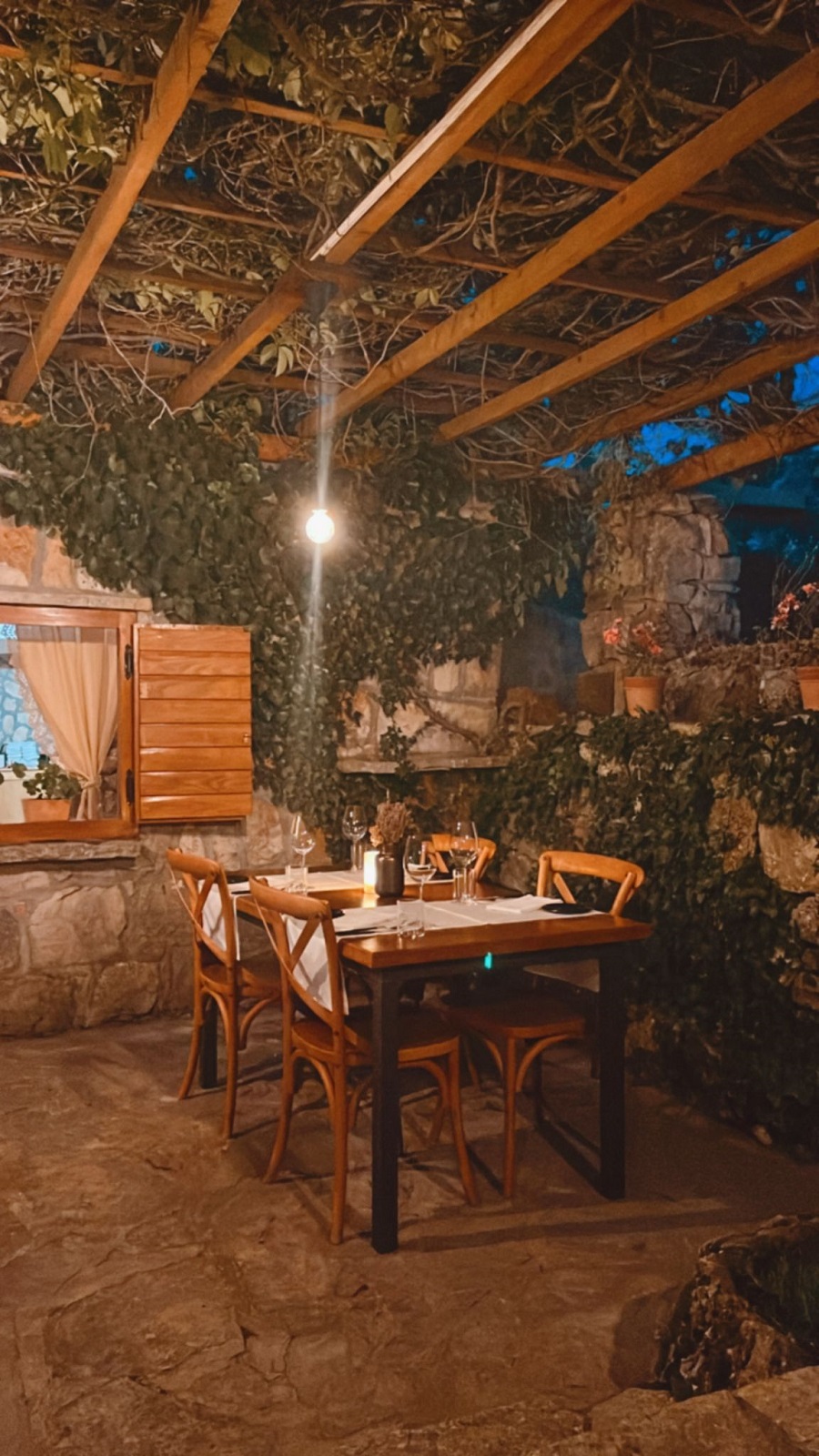
Another one of our favorites is Eko Skoj — a “from land to table” organic eco-farm owned by a mother and her kind daughter (Jelena Marović) and their wonderful team. You can walk through the flourishing garden to find a diversity of vegetables, fruits, and herbs. We even got to eat fresh cherries from the trees! Try their delicious homemade bread and order several dishes to share; a true gift for the eye and so nourishing for the tummy.
One of our favorite restaurants in Old Town is Aurora and their next-door coffee shop Aurora Sweets providing gluten-free, refined-sugar-free and dairy-free treats. Although the Wi-Fi is not very strong (yet), it’s a fantastic option to get some thoughts on paper and switch work environments with a stunning ocean view. Note: the coffee shop is only open until 3 PM — make sure to be there on time!
If you’re looking for a luxury Michelin-starred experience, then you need to visit LD Restaurant. Their wonderful staff members are incredibly attentive and passionate, serving the most Instagrammable chef’s tasting menus depending on seasonal products (definitely try their foie gras if you have the chance!). Their surprising flavors and combinations make you eat every bite so mindful to appreciate the taste so dearly. You can also rent their traditional Kata boat for a unique (romantic) dining experience in the Adriatic Sea surrounded by islands.

A few other favorite places include Konoba Mate, Bistro Maha, Vrnik Arts Club (ask for their freshly baked homemade bread!), and Adio Mare for the best catch of the day (if you’re lucky, highly recommend the Amberjack – truly delicious!).
Where to work:
Since Wi-Fi speed is not optimal (yet!) on the island, having a work-friendly home office is essential. Hence, make sure to find accommodation with high-speed Wi-Fi and enough workspace such as Korčula Hill or, before booking an Airbnb, ask the hosts to check speedtest.net for ideally a minimum of 50 - 100 Mbps.
You can also work from one of the restaurants or coffee shops in Old Town such as Aurora Sweets or Hotel Korčula where locals come for business meetings in this beautiful, monumental building. Another option is Korčula Town Library where the owner Ivan Vidali provides co-working space for about 5 Euros per month. In autumn 2022, it is expected their larger coworking space will be open too.
Things to do:
Whether you’re seeking adventure or looking to relax and recharge — Korčula island offers endless experiences making it a perfect all-year-round destination!
Here are a few of our favorite activities:
- Go for a City Tour with Korčula Tourist Board to walk through the cobbled streets of Old Town and learn more about the history, culture, and traditions. Don’t forget to take a picture in the famous Ulica Ismaelli — the most Instagrammable street in Korčula!
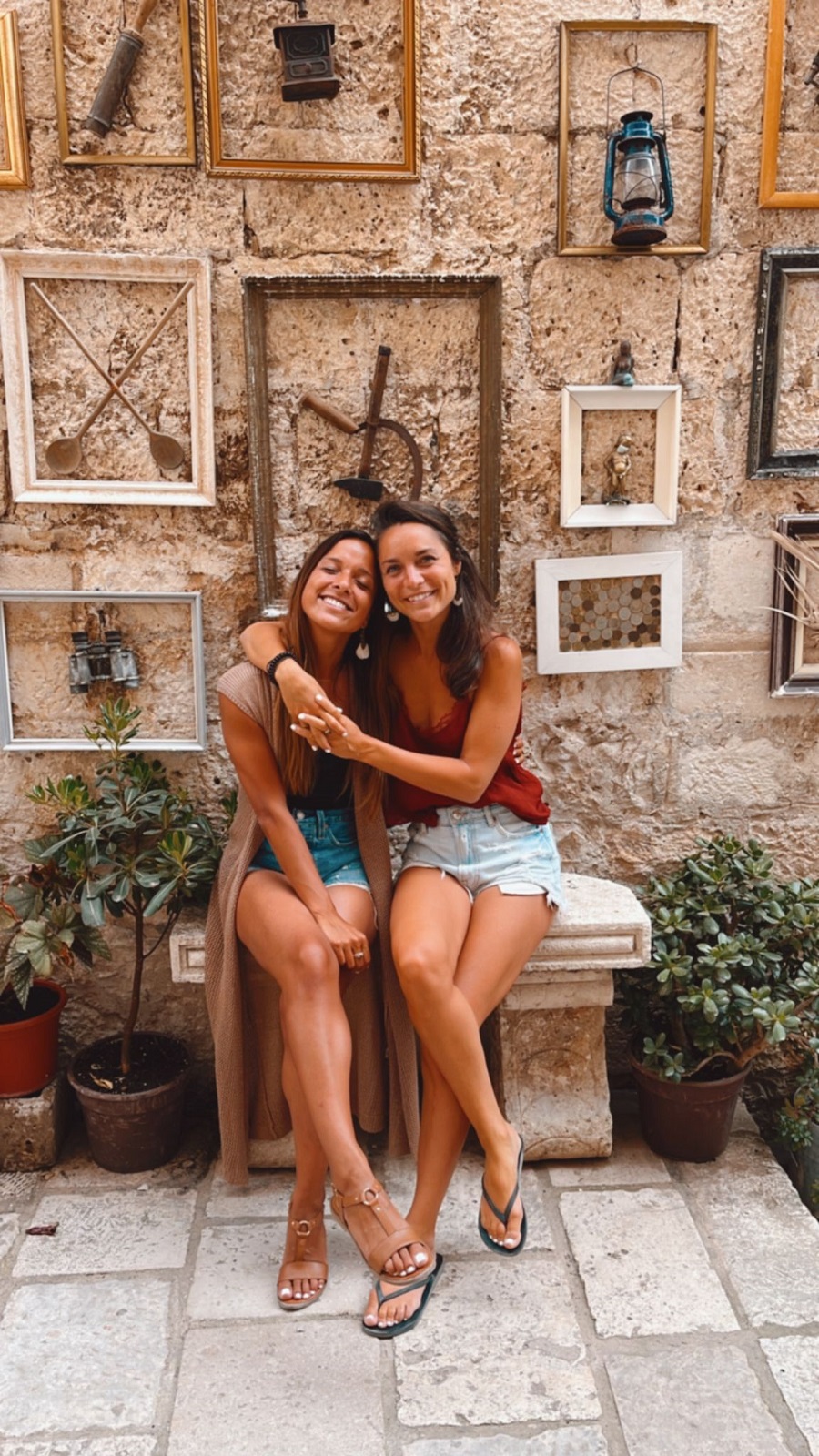
- Visit a local bee farm at OPG Komparak. You can enjoy a 45-minute workshop to learn about local honey and olive oil production for as little as 5 euro. You’ll even get to taste their locally produced Gin!
- Watch a Moreška sword dance performance. They say “if you haven’t seen Moreška, you haven’t been on Korčula”. You can watch a performance in Old Town on Mondays and Thursdays at 9 p.m. in July and August; and on Thursdays at 9 p.m. during off-season.
- Visit a local vineyard such as the recently opened, family-owned Tasovac winery for a local wine tasting experience. While Korčula is known for its popular Grk wine, our favorite is called Posip.
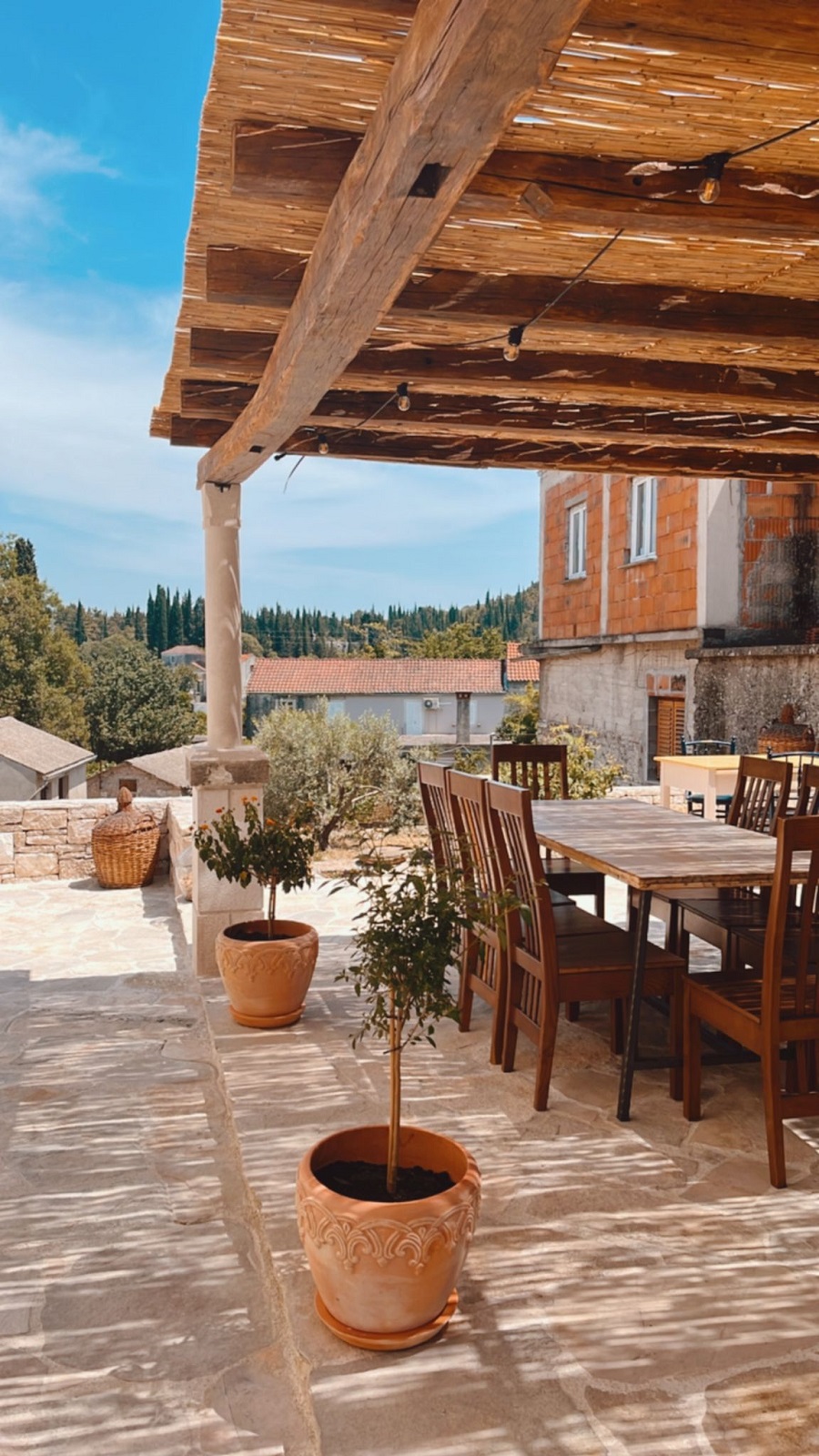
- Treat yourself to a luxury spa treatment at LD Spa such as a Thai massage or Ayurvedic relaxing massage. We highly recommend all therapists — especially Viviane from Brazil who has the purest energy and wisdom with years of experience having studied in India and has now landed her wings in the beautiful Korčula island.
- Go Island hopping to explore the nearby islands such as Badija island, Vrnik, and Stupe. You can hop on a water taxi for about 10 - 20 Euros return per person, or rent a private boat with La Banya for a half-or full-day experience visiting the most beautiful beaches.
- Enjoy an outdoor activity with Korčula Outdoor such as sailing, multi-day guided sea kayaking tours, and visits to the pristine archipelago and nature reserves. The wonderful owner Damir is truly kind and ensures you’ll have the best experience!
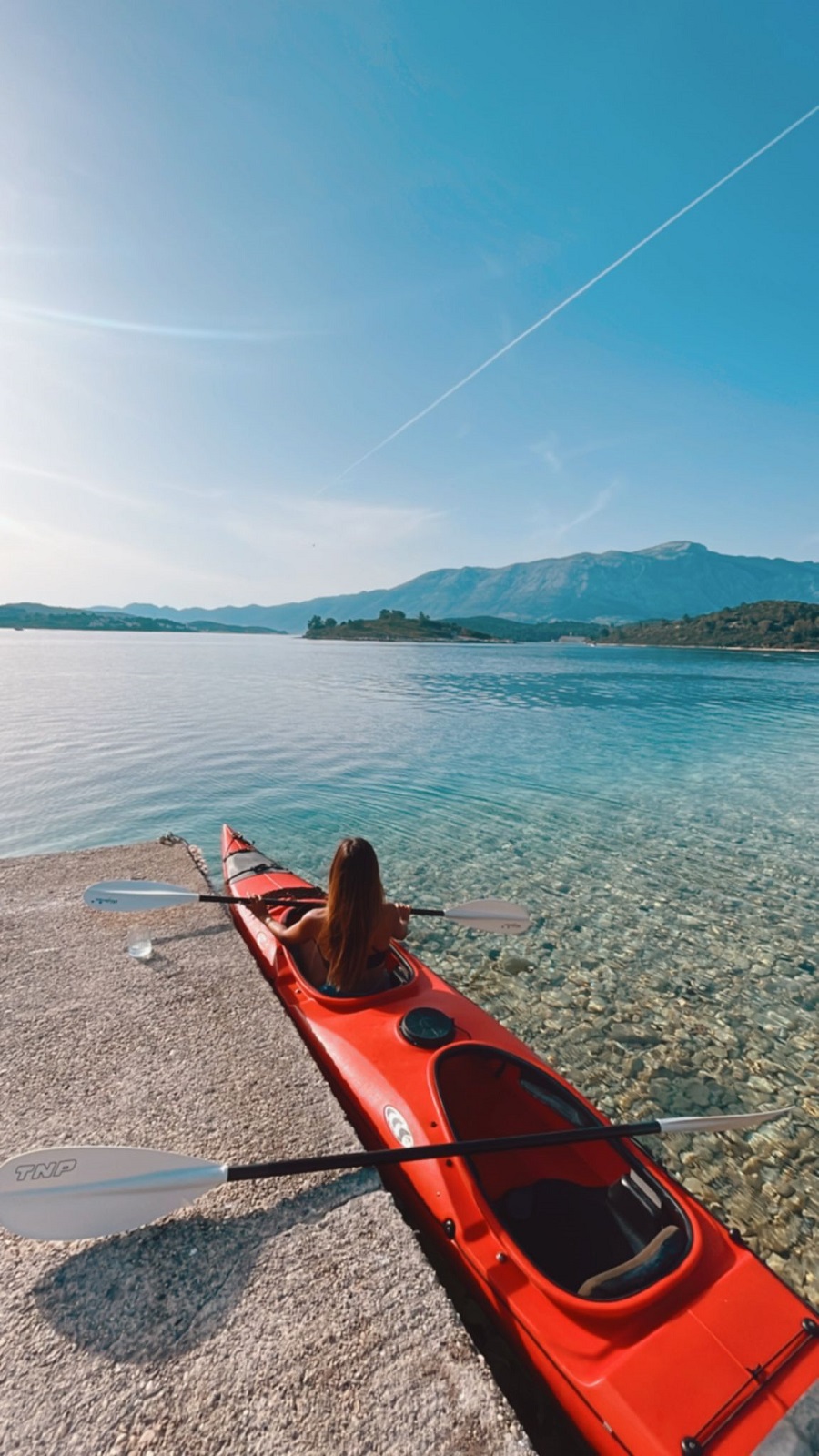
- Go beach hopping to explore Korčula’s pebble-stone beaches such as La Banya Beach, Pupnatska Luka, and Vela Luka. However, we recommend simply roaming around the island by bike / foot / car / scooter as you can find many tiny entrances and stairs to beautiful “hidden gems” with crystal clear waters. We prefer going off the beaten track, but, if you rather go to the more common beaches (also beautiful!), you can find the most recommended beaches here.
- Join wellbeing or active classes such as going for a swim at this indoor swimming pool, a yoga class with Nina at Yoga Korčula Balanca, a typical local sport at Water polo at PK Korčula (founded in 1930, they are legendary!), or a pilates class at Pilana studio by Lana — having studied and worked extensively in this field, she has a fiery but compassionate energy. Classes can be given in Croatian or English, and she offers both group classes as well as 1-1 to tailor it to the person with passion. Highly recommended!
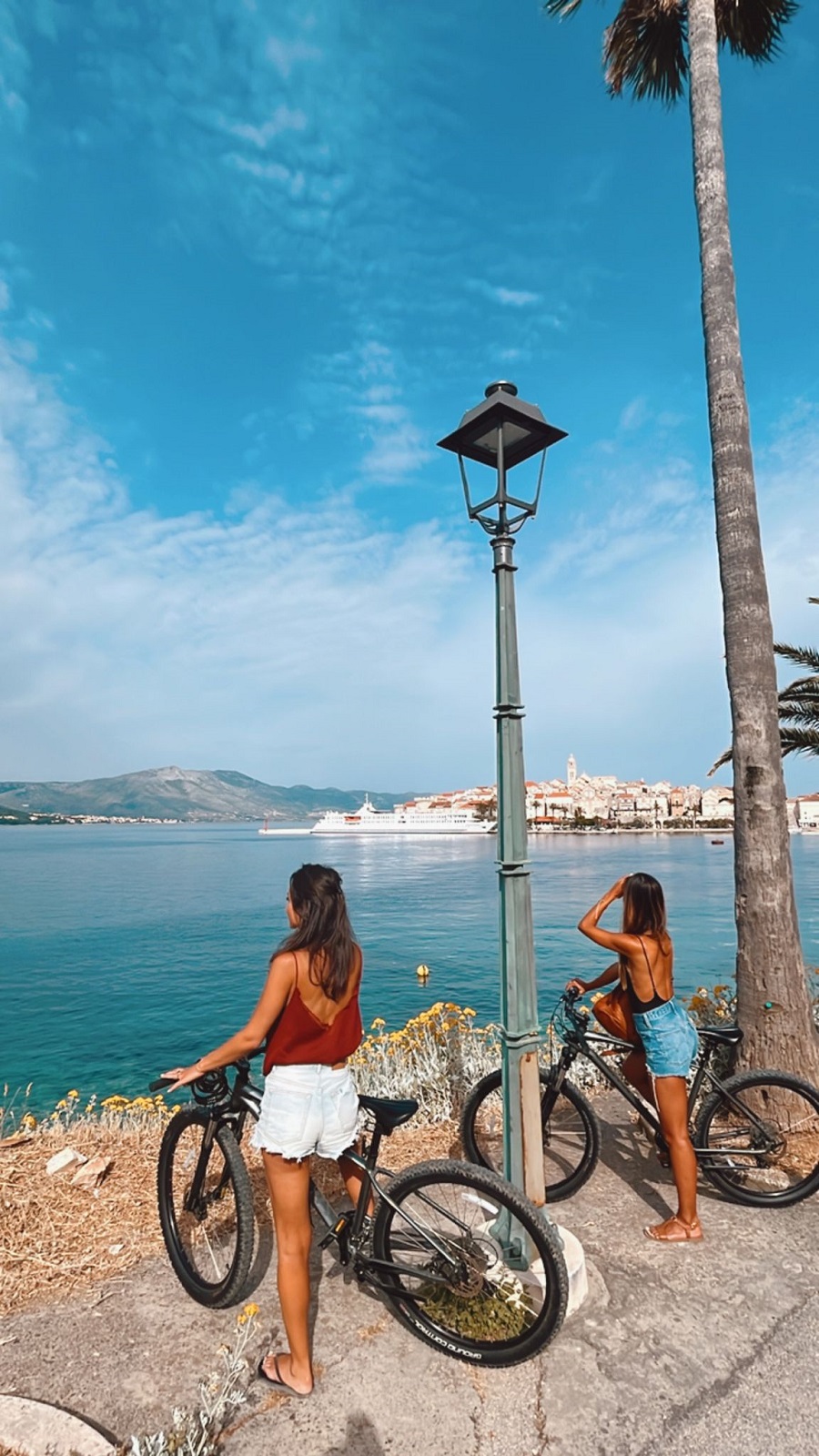
General tips & recommendations
After spending two weeks on Korčula island, it already has a special place in our hearts. It is such a safe space where you can leave your bike unlocked (yes, it’s still possible here!) and where locals still simply catch the freshest fish from the Adriatic sea themselves to enjoy with family for dinner.
Here are a few useful links for planning your (next) visit to Korčula island:
- Must see and do’s: https://www.visitkorčula.eu/see-and-do.html
- Walking experience: https://www.visitkorčula.eu/hiking-walking.html
- Cycling experience: https://www.visitkorčula.eu/bike-routes.html
- Events calendar: https://www.visitkorčula.eu/events-calendar.html
- Green market: a tiny, daily market next to the entrance of Old Town which is lovely for its fresh vegetables and fruits.
We hope this guide will help you to create the ultimate digital nomad experience in Korčula island. We highly recommend visiting off-season to escape the tourist crowds while still being able to enjoy nice, warm temperatures all year round.
Many thanks to Hana from the Korčula Tourist Board and Ivana from LD Palace for giving us a memorable, one-of-a-kind experience on this magical island :) Hvala!
This guide is written by Yvette Pelgrom and Mandy Fransz to share their top tips and recommendations after working remotely in Korčula island, Croatia as the inaugural Digital Nomad Ambassadors, a pro-bono concept designed and delivered by Saltwater Nomads, in partnership with the Korčula Tourist Board, Korčula Hill and LD Palace.
Now check out Mandy and Yvette's guide for digital nomads in Dubrovnik.
Lifestyle: NomadList Shows Why Croatia Most-Liked Remote Work Destination in Europe
July 3, 2022 - Croatia is establishing itself as a leading remote work destination. The latest NomadList 2022 survey gives some clues as to why.
It is peak season in Croatia, and most of the country's tourism is focused on the traditional sun and sea tourism on the Adriatic. But away from the coast, and away from the beach, a newer, more sustainable tourism is taking route in a country that desperately needs to diversify its tourism strategy away from overtourism in the summer months on the beach.
It is about three years since I wrote an editorial called Branding Croatia for the Future: 5 Gifts and Trends to Focus On. For a country so reliant on one form of tourism, I was shocked at how much untapped potential Croatian tourism had all over the country, 365 days a year. Three years later, thanks largely to efforts in the private sector that were embraced by the public sector and - belatedly - by the official tourism board, one of those five gifts and trends is being not only realised, but showing outstanding potential to move Croatia into a new and exciting direction - digital nomad tourism. And I am sure that the other four gifts will find their moment in the sun at some point.
This week's NomadList 2022 survey gives some great insights into the digital nomad lifestyle, as well as showing just how well-positioned Croatia is to develop itself in this rapidly-expanding tourism niche. Finding reliable data about digital nomads is notoriously difficult, as they do not register as such when they travel, so it is hard to capture the data. The NomadList data is captured through its paying members and their actual movements, and is therefore one of the few good indicators available of trends within the digital nomad community. And for those willing to spend more than 10 minutes looking at the headlines, there are some rather interesting findings, most of which are very good news for Croatia.
Before looking at what is attracting nomads to Croatia, it is worth reflecting on some of the data in the survey to dispel a few myths and also to see how Croatia's approach to the visa - or permit - reflected the needs of the nomads it was intended to serve. I remember at the time that there was a lot of criticism of Croatia's requirement to have an income in the region of 25,000 euro a year in order to qualify for the permit, as this would disqualify many applicants based on income. I personally thought this figure was about right - the whole point in creating this opportunity was to bring in people who would be spending.
And it seems that the vast majority of nomads would have no problem meeting this requirement, with 77% of nomads earning more than $50,000 a year, and the average salary just under $120,000. That is some very nice purchasing power for visitors coming for an xtended period to a country.
Another criticism after the permit was introduced was how few nomads actually applied for it. I must admit I was expecting significantly more than did apply, but again the data is a good guide. With only 15% of nomads staying more than 3 months in a country, the number of applications for a whole year is necessarily going to be low. And with 82% spending between a week and 3 months, most don't need to apply for any additional permits other than any normal entry visa.
High net worth individuals spending around two months in a country on average - and not necessarily in the summer on the beach - is a niche to be cultivated. So what makes nomads tick, and does Croatia have anything to offer them? Oh yes... indeed, it almost seems as if the spec was written with Croatia in mind. The big concept I took from this survey was the search for lifestyle.
Here is how male and female nomads describe themselves by interests. Do you think any of these might fit into the Croatian lifestyle?
Top of the list for both male and female nomads is the epicentre of Croatian culture - coffee.
I have never lived in a country where the coffee culture was so culturally engrained into society as in Croatia, and I constantly marvel at how my Croatian colleagues can make an espresso last an hour as I sink four beers in the same time. Comparing life in a Starbucks in the States to the relaxed cafe culture in Croatia has to be one of the great cultural divides, and I have lost count of the number of American nomads who wonder at the beauty and friendliness of the Croatian coffee scene, where new friendships are made daily over a cup.
Also rating very highly are two of Croatia's great natural strengths - hiking and the outdoors. With over 10% of the entire country given over to national and nature parks, Croatia's attractiveness as a great outdoor destination is without question. Outstanding hiking opportunities such as Sljeme in Zagreb, Marjan in Split and Stari Grad Paklenica by Zadar are all very accessible from popular nomad cities, while the many parks of Zagreb are also very popular.
Beer and Wine. Welcome to Croatia, the birthplace of Zinfandel, one of 130 indigenous varieties in an increasingly homogenous world. And for a country with a better emerging craft beer (and gin) scene, one would have to search a little. Many of Croatia's wine experiences are authentic and unique, small family growers only now discovering international markets. They are a joy to discover.
One of the other gifts and trends to work on from that editorial three years ago was Croatia's potential as a sporting tourism destination. And looking at what gets nomads active, it seems to be a match made in heaven. Croatia has outstanding options in almost all of these sporting activities. It almost feels that Croatia is a country designed by a digital nomad wishlist.
Add to all this, of course, the many other attractive aspects of Croatia's offer - its safety, excellent English, great WiFi, affordability, accessibility, culture, natural beauty - and no wonder that Croatia is starting to figure more prominently as a remote work hot spot in Europe. And let's not forget the huge potential of Croatia's excellent medical tourism industry (yes, also one of the five gifts in that 2019 editorial). If remote workers realised the quality and price of dentistry, cosmetic surgery, eye surgery, and a host of other medical procedures, they could build that into their Croatian experience, saving lots of dollars and discovering yet one more reason why the future of sustainable tourism away from the beach in Croatia is looking brighter than ever before.
Learn more in Medical Tourism, the Hidden Gem in Croatia's Remote Work Revolution.
For more news and features about digital nomads in Croatia, follow the dedicated TCN section.


